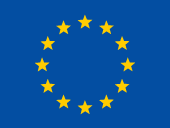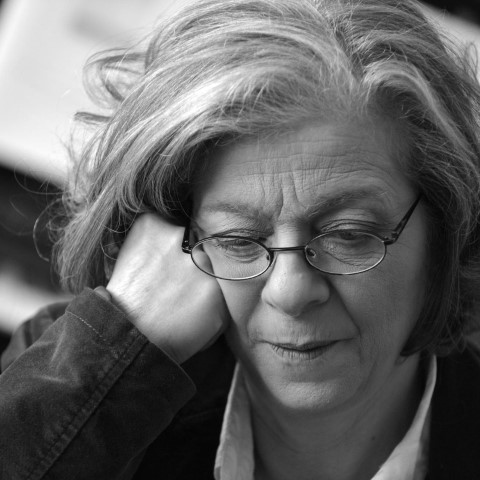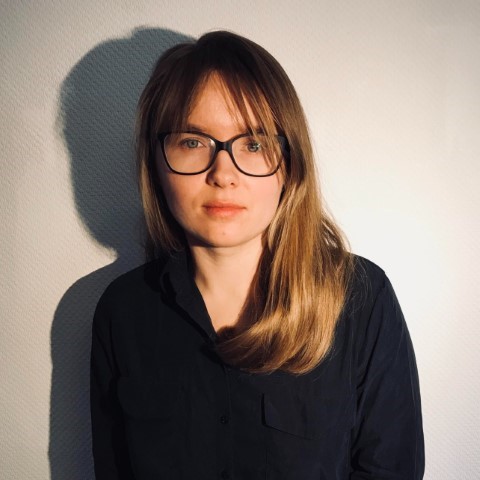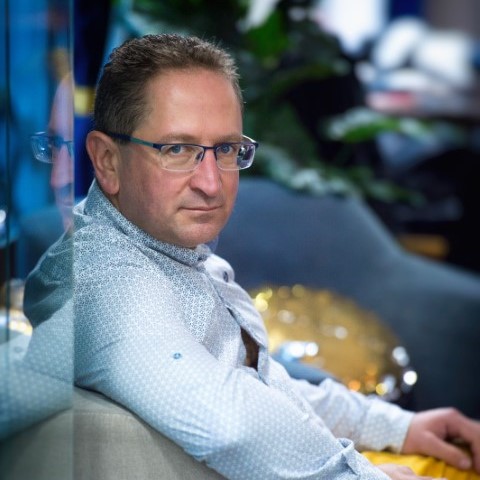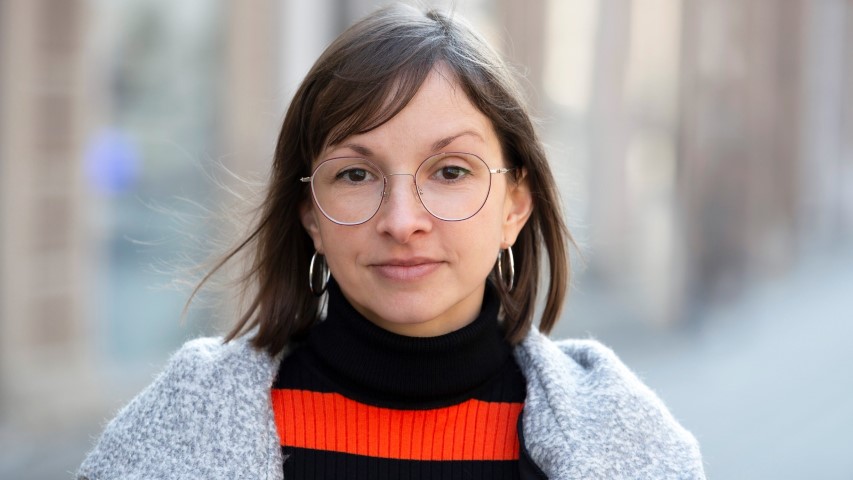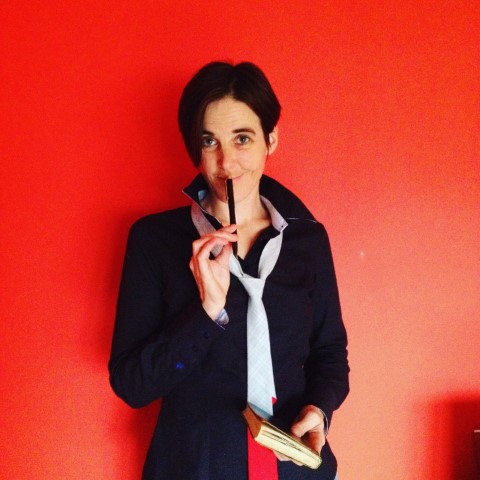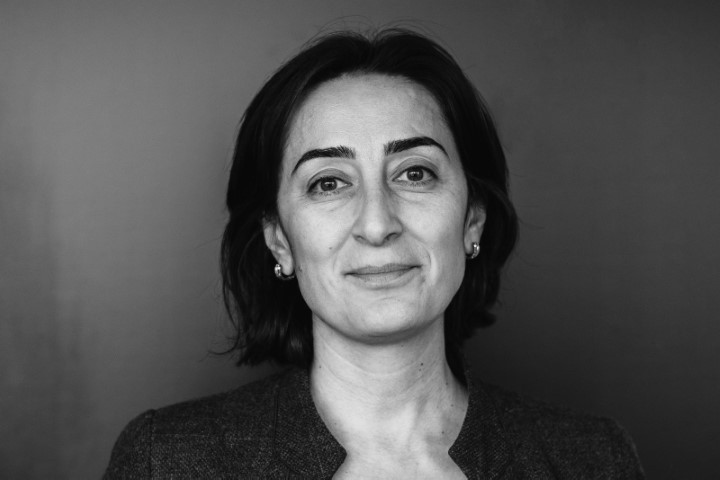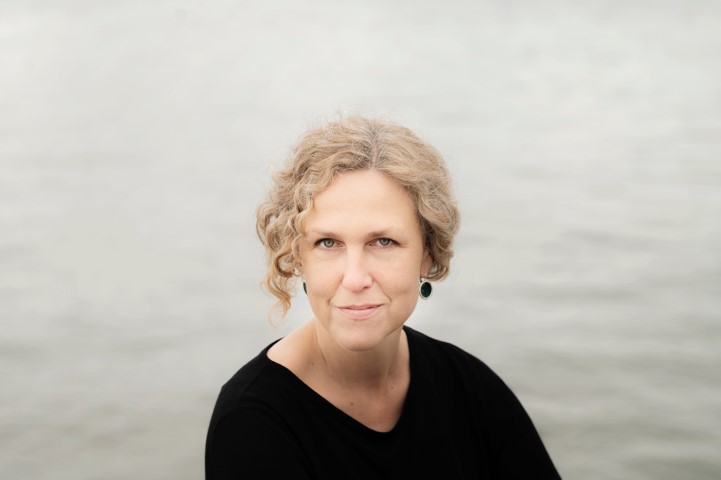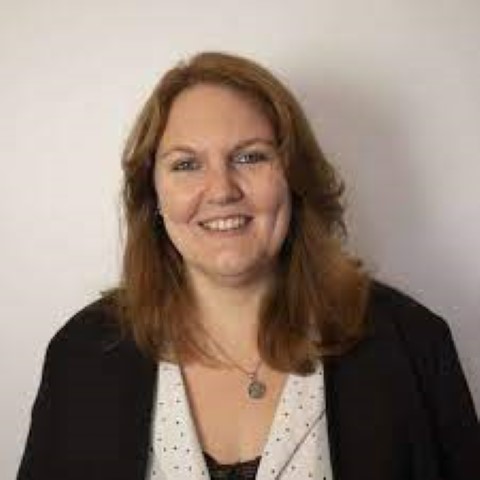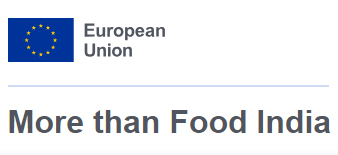- Home
- Welcome to the EU Alumni newsletter!
FOR LOVE OF CHRISTMAS AND FESTIVE CHEER
By Megha Sharma
“I will honour Christmas in my heart, and try to keep it all the year.“ – Charles Dickens
A time for warmth; a time for love; a time to rejoice, and give negativity a shove - Christmas is indeed ‘the’ most wonderful of all celebrations. With twinkling lights and shimmering trees galore, this time of the year sees the entire continent of Europe dappled in varying shades of revelry.
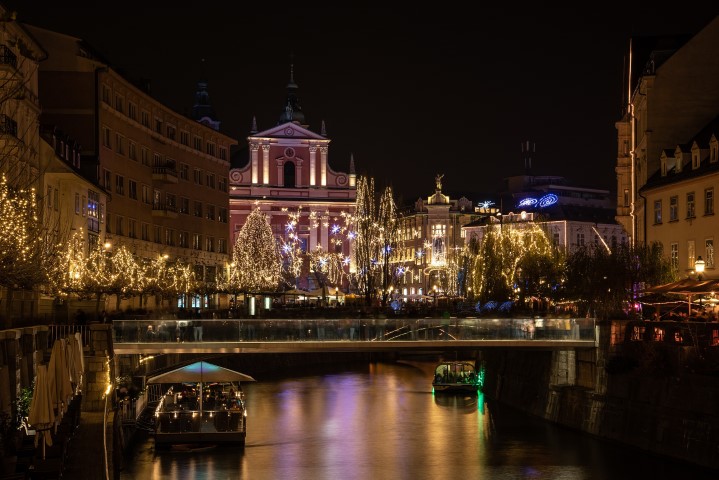
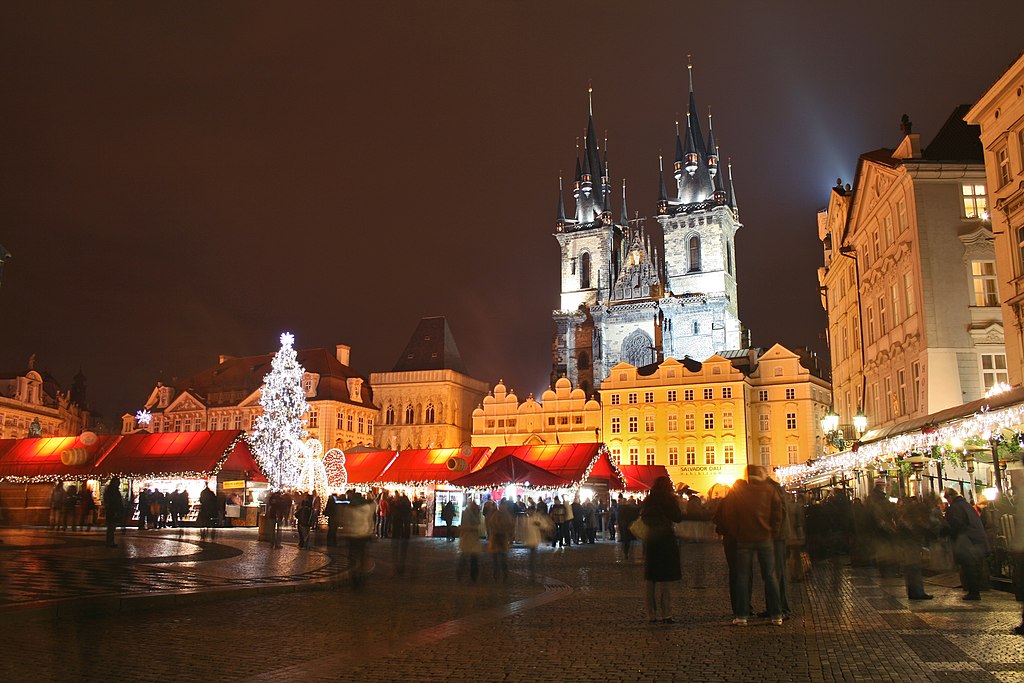
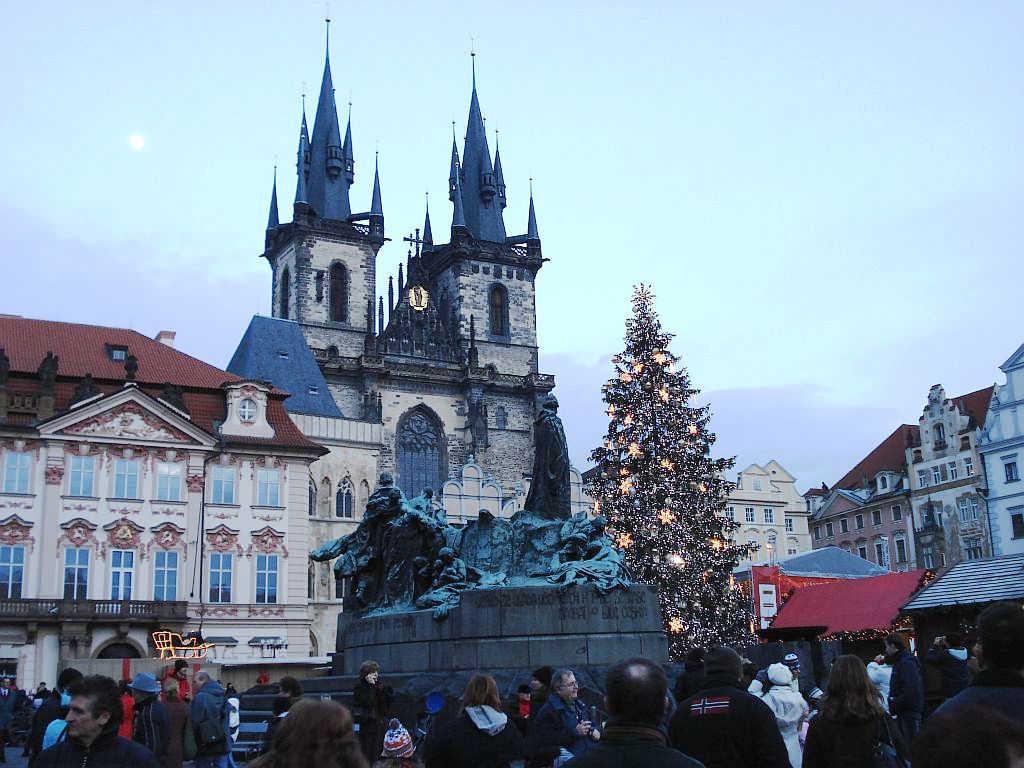
Seamlessly blending tradition with culinary expertise and festive flair, Christmas markets across European countries offer an experience that’s matchless. With natural and architectural backdrops sublime enough to inspire poets, these carnivalesque Christmas markets are definitely worth a visit…or two!
Be it at the award-winning Advent Basilica Christmas Fair at Budapest in Hungary, or the Craiova Christmas Market in Romania - the choice of local cuisine, elegant souvenirs and hand-crafted knick-knacks on offer at these annual events are sure to boggle your mind.
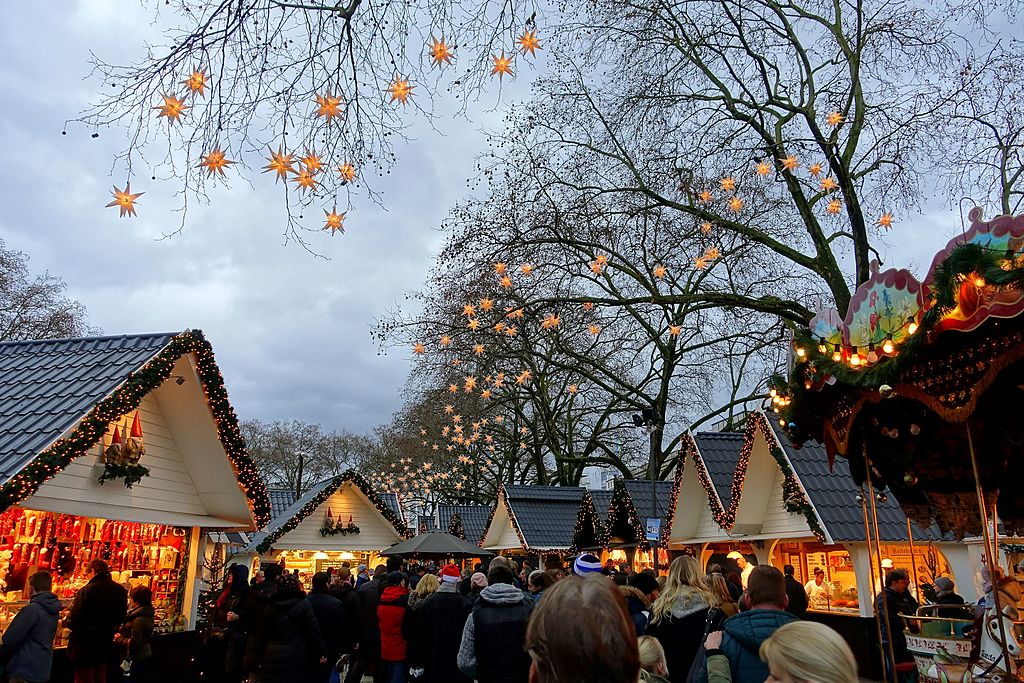
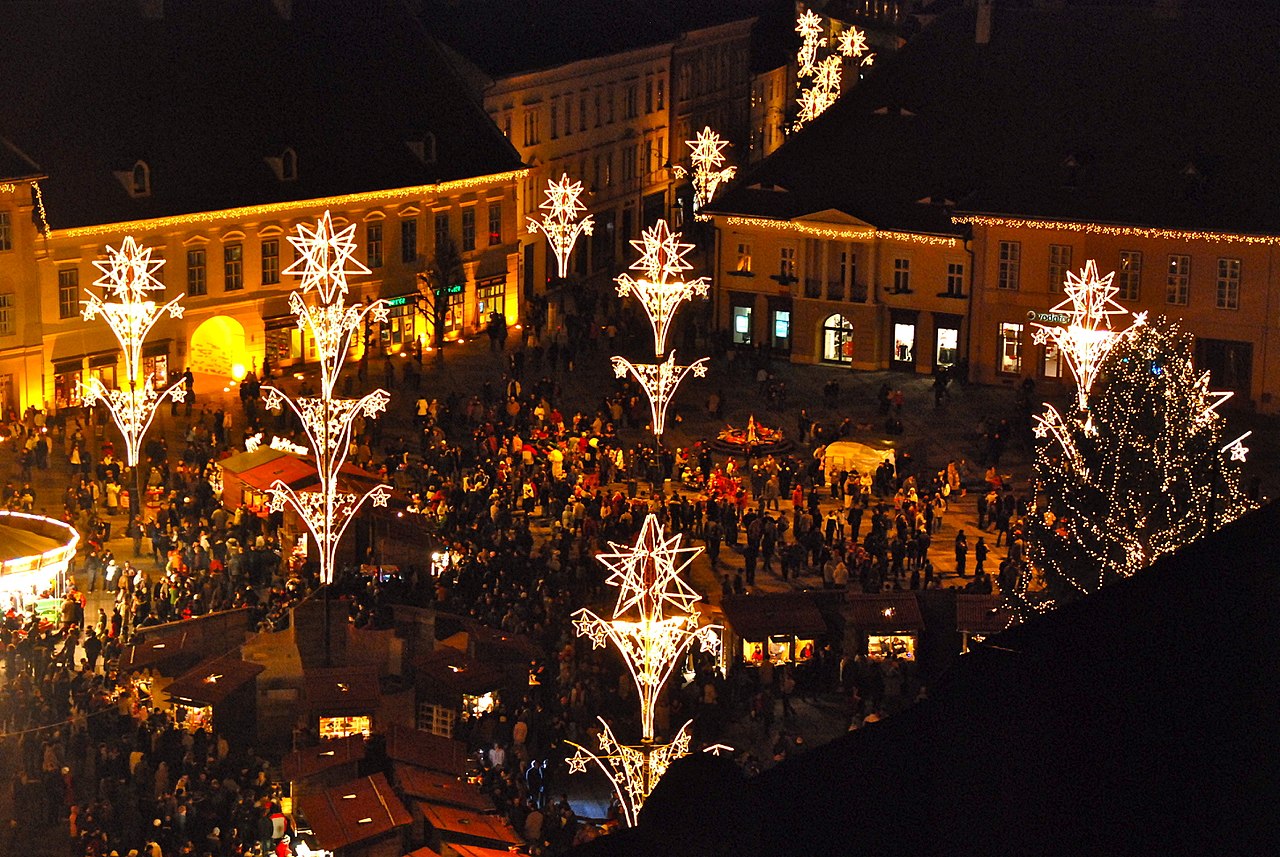
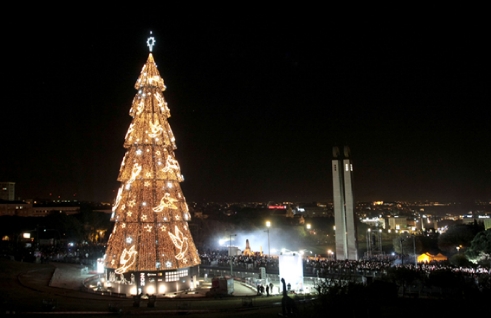
Treat your loved ones to an exquisite time at the Christmas fairs in Metz, France; or invite your little ones to take a spin on the ice at the famed skating rink in Poznan, Poland. Enjoy the vintage vibes of the Christmas Markets at Frankfurt and Dresden - two of the oldest markets in existence in Germany which date all the way back to the 14th century.
The Old Town and Wenceslas Square Markets at Prague, Czechia; the Plaisirs d’Hiver at Brussels, Belgium; light displays on Calle Marques de Larios in Malaga, Spain; the City Hall Christmas Market in Vienna, Austria; the Advent Zagreb and Dubrovnik Christmas Markets of Croatia; the Cathedral Square Christmas Market in Vilnius, Lithuania; the seven Christmas Villages of Cyprus; the Lëtzebuerger Chrëschtmaart at Place d’Armes, Luxembourg; the Deutscher Weihnachtsmarkt of Sofia in Bulgaria; and the Fairyland Santa's City in Valletta, Malta - these are just some of the umpteen spectacular festive carnivals that transform Europe into a dream destination through the months of November to January.
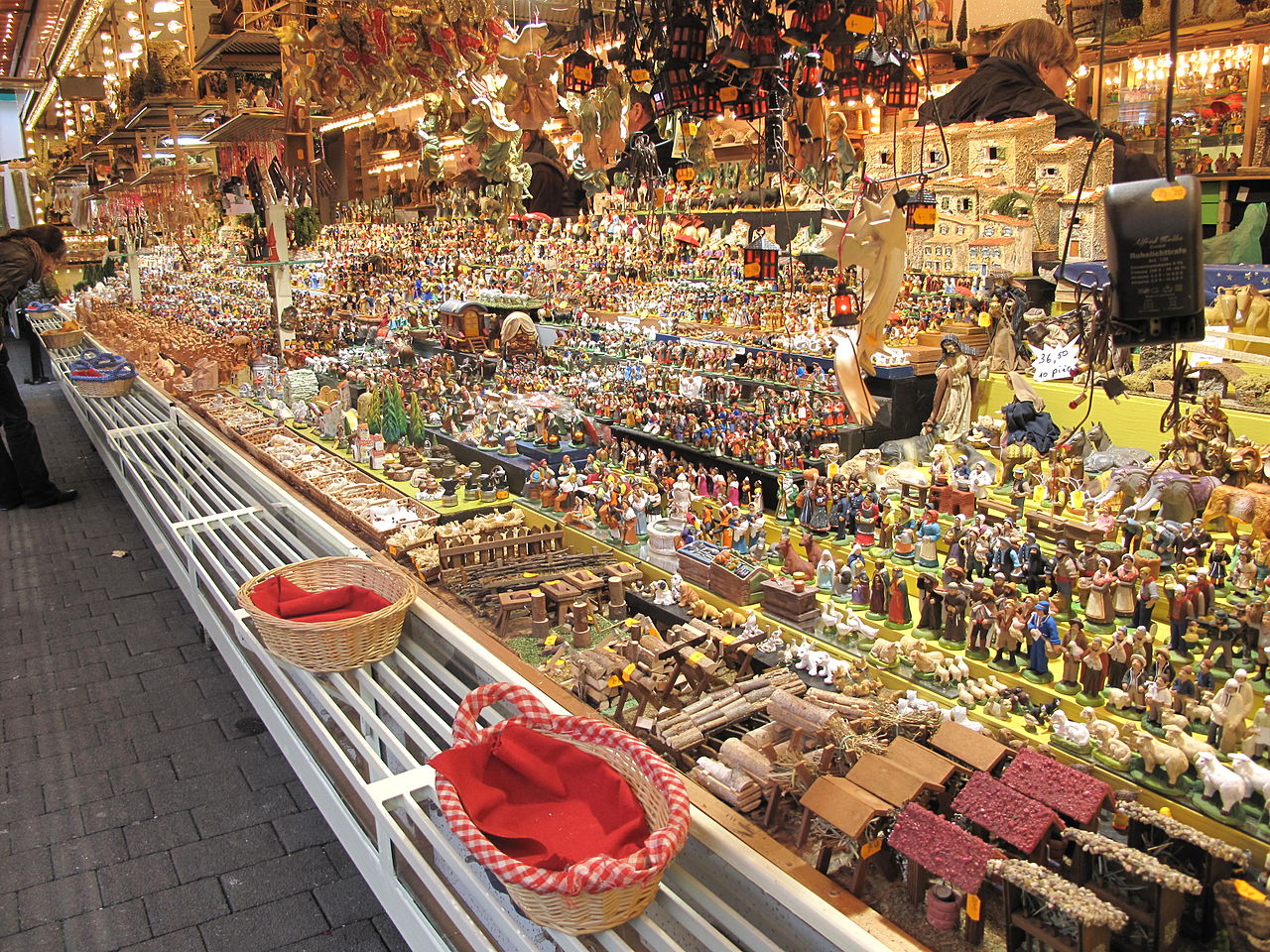
Apart from fabulous Christmas Markets, Europe is also a rich melting pot of amazing holiday traditions which are as interesting as they are varied!
On Christmas Eve the Danish dance around their Christmas trees to the tune of carols, while Swedish families gather in front of the television on 24th December to watch vintage Disney cartoons. Meanwhile, in Finland it’s customary to luxuriate in the sauna post Christmas dinner.
In Ireland, a red candle is lit and left by the window the night before Christmas to help Mother Mary and Joseph find their way to Bethlehem. Children and women in Greece, on the other hand, decorate wooden boats to welcome their menfolk safely back from the sea.
There are many customs followed across Europe with regards to food as well, when it comes to the holidays. The Latvians, for instance, ensure that the Christmas Eve menu consists of nine traditional dishes, while in Estonia it’s customary to feast on blood sausage at Christmas. In Slovakia though, carps form a major part of the Christmas meal.
If unique and marvellous Christmas tree installations are what your heart craves, head on to the mediaeval town of Gubbio in Italy that has been the site of the world’s largest Christmas tree illumination since the year 1981. The brightly-lit display has made it to the Guiness World Book of Records, and spans a staggering 2,000 ft along the slopes of Mount Ingino. Lisbon in Portugal is home to another delightful holiday spectacle as here stands a Christmas tree that is considered to be Europe's tallest. The tallest Christmas tree in Slovenia, meanwhile, stands in the marina in the town of Izola and is actually the decorated mast of a sailing yacht!
These are just a few of the many grandiose presentations and extraordinary rituals which transform Europe into a twinkling haven for the holiday season. Distinctive traditions, delectable food and an all-permeating spirit of giving and spreading of joy - it’s true when they say that no one does holidays like the Europeans!
By Megha Sharma
EU FILM FESTIVAL CONCLUDES DELHI CHAPTER
This year marked the 28th edition of the prestigious EU Film Festival which offers a distinctive ‘Window into Europe’. Spanning 10 days, the festival offered a painstakingly-curated selection of 28 movies from 27 EU countries and Ukraine in 25 languages across three venues in Delhi – India Habitat Centre, Instituto Cervantes (Spanish Cultural Center), and The Goethe-Institut /Max Mueller Bhavan.
The audience also had the opportunity to get an exclusive insight into the nuances of film making and acting in inspiring interactions with French actress Guslagie Malanda , Finnish director Hanna Marjo Västinsalo , Finnish Producer Cyril Jacob Abraham , Estonian director Anu Aun and the festival co-curator Veronica Flora from Italy.
.jpeg)
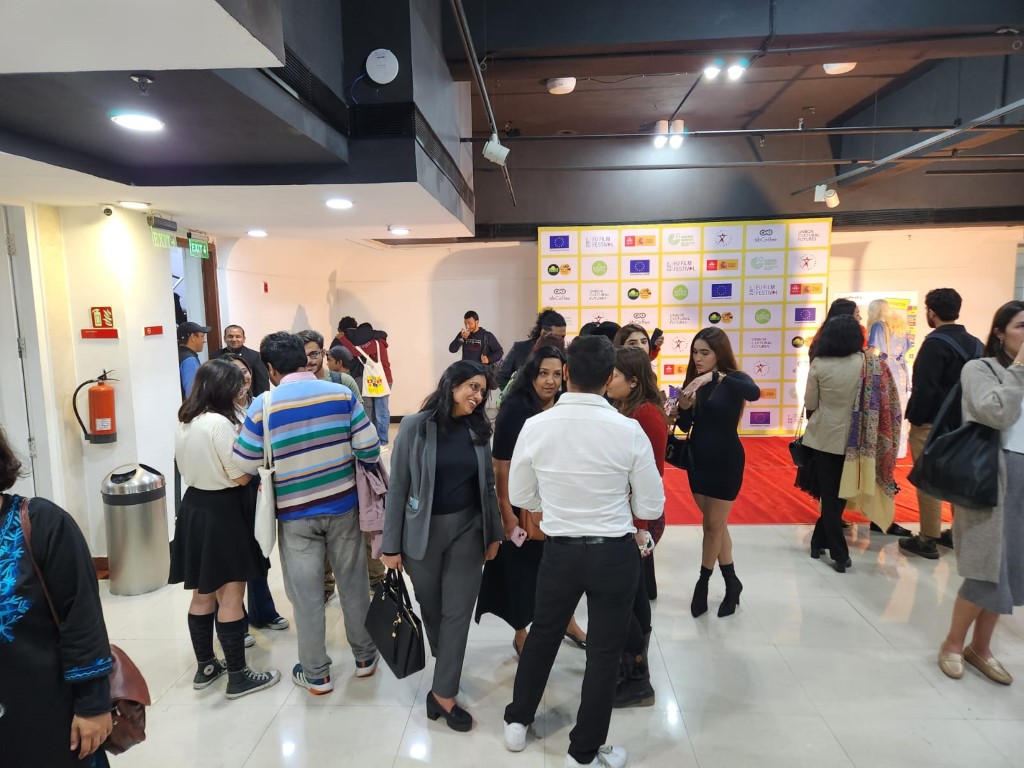
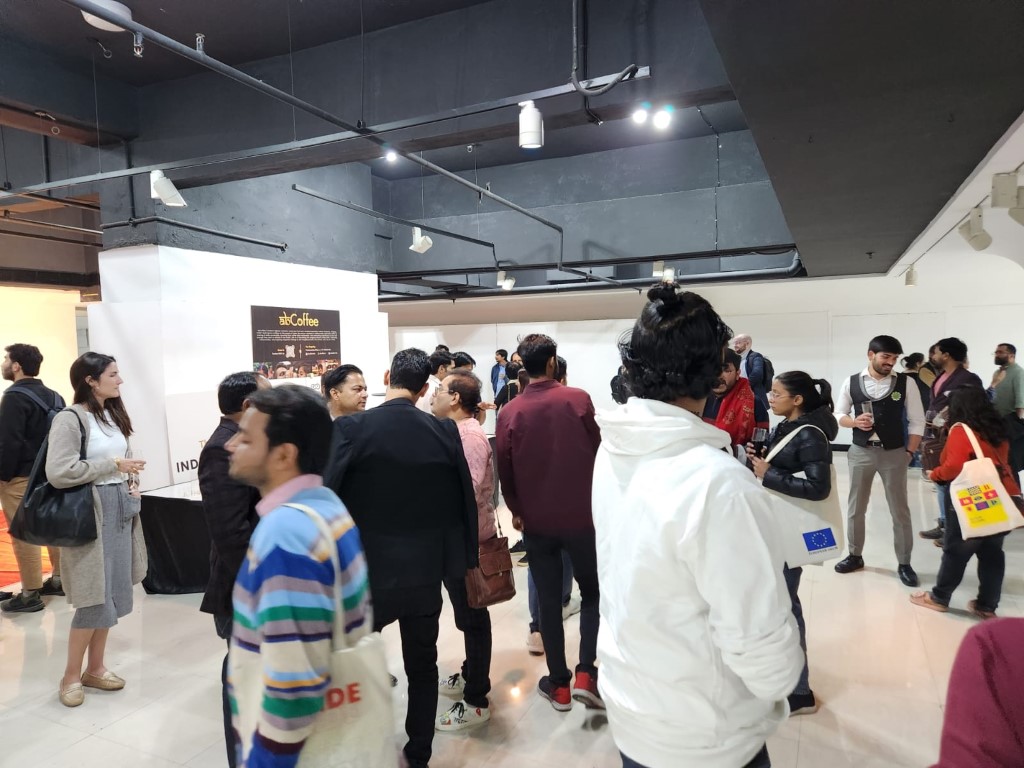
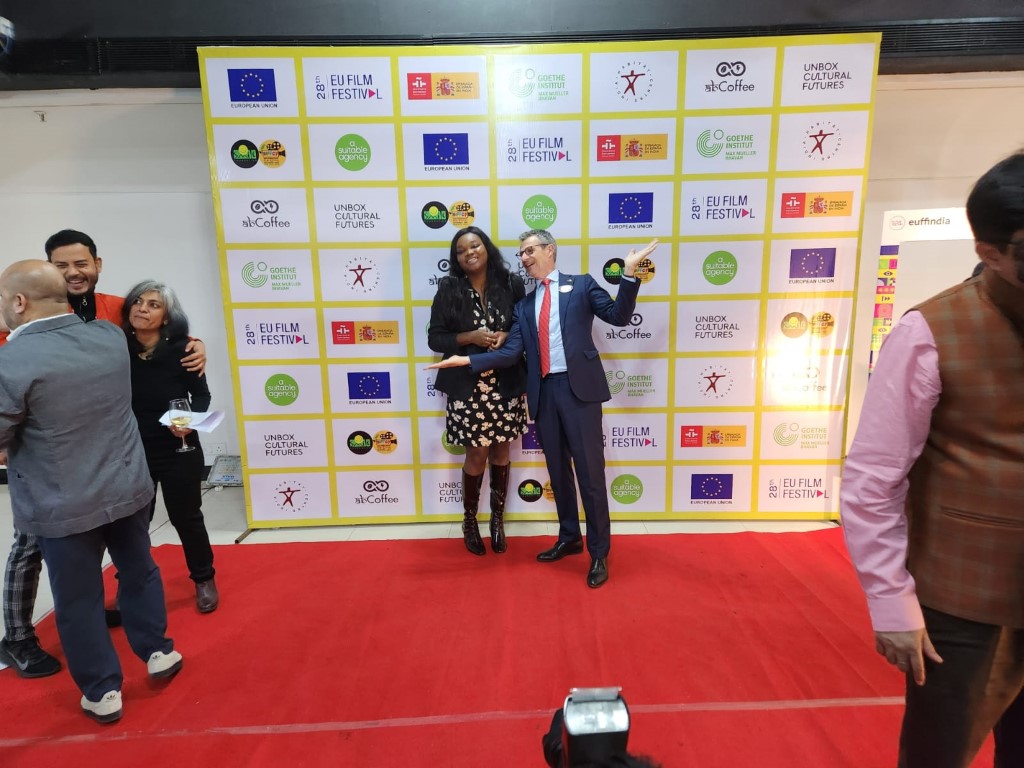
.jpeg)
.jpeg)
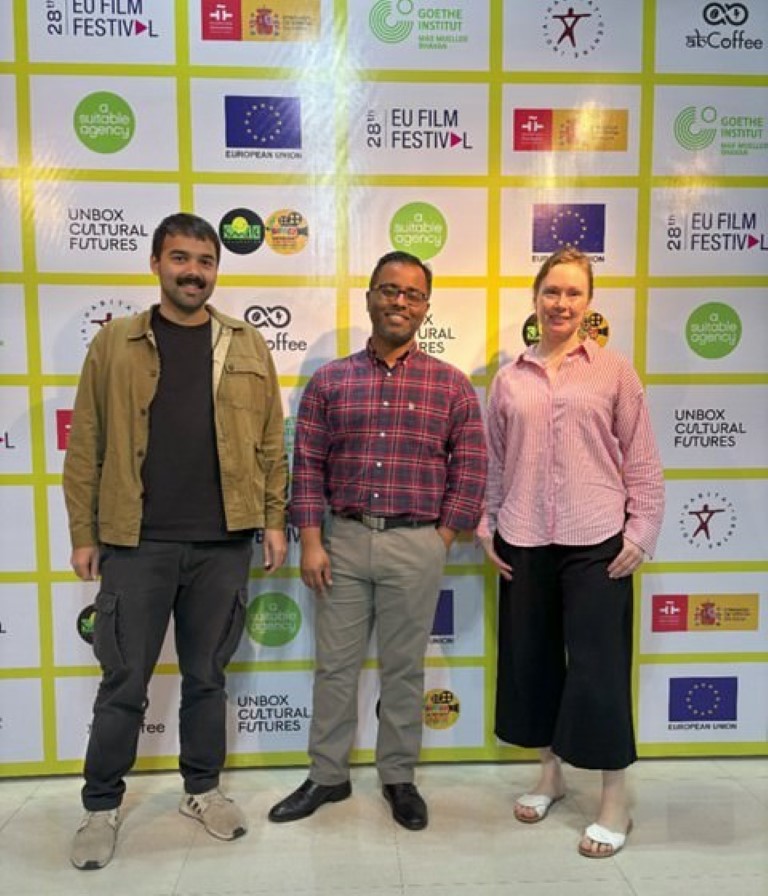
.jpg)
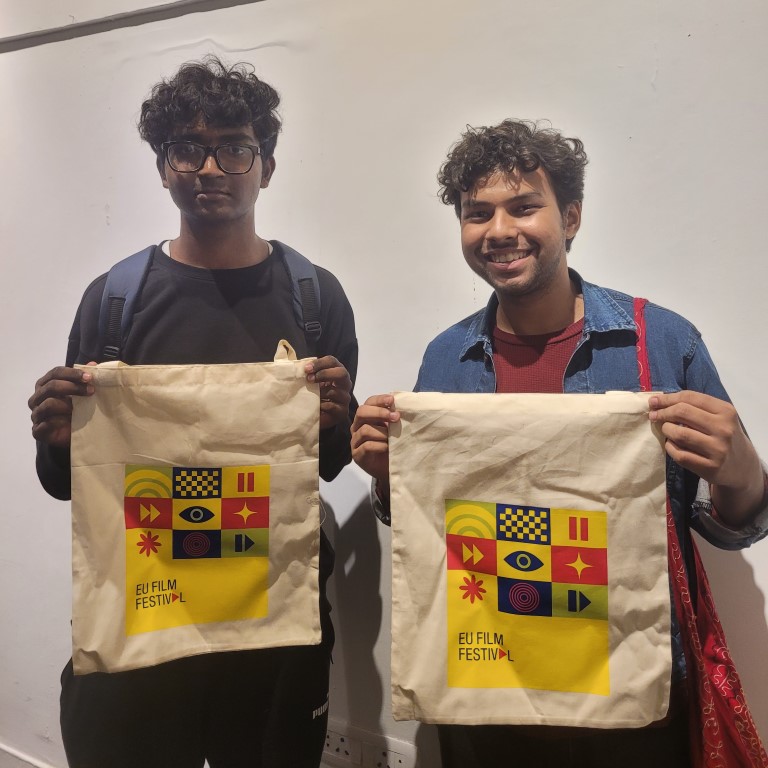
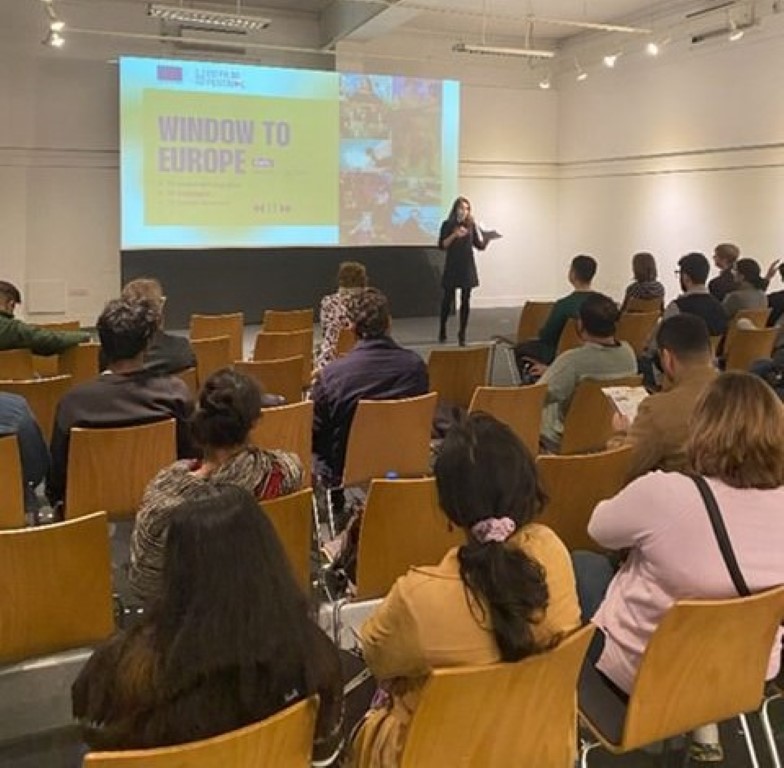
WOMEN IN EUROPEAN CINEMA
A panel discussion titled ‘Women in European Cinema’ was held on the second day of the European Union Film Festival. Moderated by film scholar and programmer, Sukhpreet Kahlon, the panel included the co-curator of the festival, Veronica Flora; director-scriptwriter and producer from Estonia, Anu Aun, whose documentary Walker on Water is being screened at the festival, and French actress Gulsagie Malanda, whose film Saint Omer was the Opening film of the festival.
The discussion began with certain findings from the Cineuropa Industry Report that examines films produced over a ten year span in the EU. According to the report, there has been an increase in the representation of women in cinema both on and off camera, but there remains a lot of room for improvement, as there was a lot of disparity between the number of men and women working in cinema. The report highlighted that there is a greater representation of women in the fields of directing and screenwriting but not so much in cinematography and other technical fields.
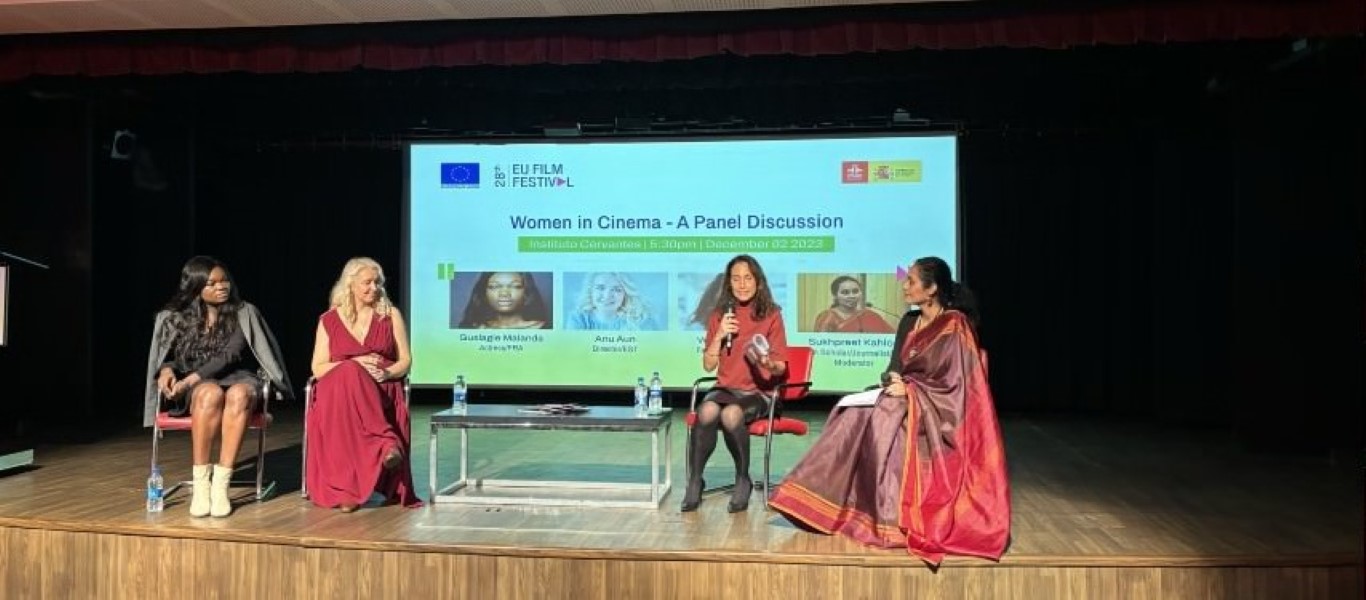
While Anu Aun and Gulsagie Malanda shared their personal experiences as artists, Veronica Flora offered an overview with her observations as a film curator. Aun pointed out that the situation of women in film was comparatively better in Estonia, where conscious efforts have been made for the film industry to be more inclusive. The person heading the Government film funding agency in Estonia is a woman and this seemed to be a likely reason for greater opportunities for women filmmakers in the country.
Malanda shared her observations of the French film industry, and pointed out that the discussion becomes more complex when one scrutinizes the question of race. Sharing her personal experience as an actress, she described how for a long time, she was only offered stereotypical roles of prostitutes, criminals, immigrants, terrorists, based on the color of her skin. She also emphasised the need for an awareness about the power that men continue to exert in cinema both behind the scenes as well as in terms of the themes that films engage with.
As a film curator, Flora spoke about the differences in representation of women in cinema when it came to countries in the EU, as some countries were more inclusive than others. She pointed to the example of Spain as being one where recent films have been displaying positive trends when it came to women in cinema. She also pointed out some very strong gender themes that had been witnessed in recent times, which was an encouraging sign and that while as a curator, she did not have any preferences when it came to screening films that dealt with the theme of gender, she had observed how gender has been the focus of several films that were being screened at film festivals.
Both Malanda and Aun also discussed the differences in working with men and women behind the scenes and related their experiences, emphasising that when it came to making a film what remained crucial was the sensitivity with which the films were being made. The gender of the filmmaker was not really the important factor but the intent was.
The panelists also answered questions from the audience, discussing how the situation had changed in light of streaming services. While Aun pointed out that she was not sure about the medium dictating content as what is available in Estonia might be very different from what was being made available in the rest of the world but since the film industry was quite open, the differences did not seem stark. Malanda pointed out that the case of the rest of the French industry was being carried forward when it came to streaming services as well but things were changing slowly.
Responding to a question on pay disparity, Aun said that as a producer and co-founder of a production company, she was in the privileged position of making the payments! However, when it came to pay disparity, there was really no way to make comparisons, as the pay of colleagues is not made public, thus not enabling ways of making comparisons. Malanda, on the other hand, agreed that there were disparities in payment which definitely needed to be addressed and pointed out how women tended to ask for lesser money than men.
The engaging panel discussion provided much food for thought for the audience and all panelists were in agreement that a strong political will in favour of inclusivity was the way forward to enable a greater representation of women in cinema.
FINDING CONVERGENCES
Seizing windows of opportunities in the EU-India Strategic Partnership
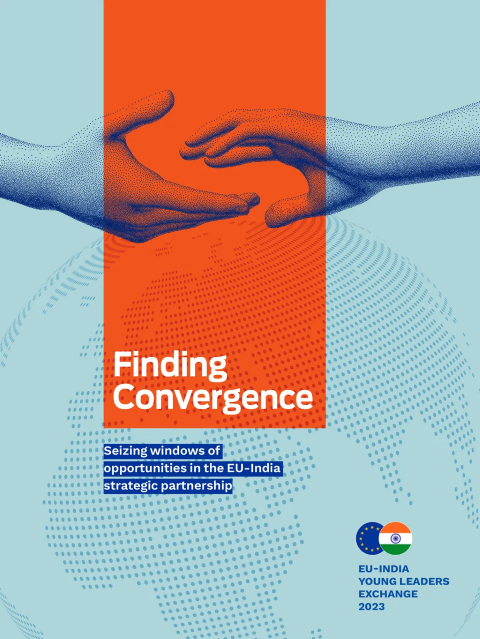
As part of the project, a group of 20 Young Leaders was selected among a pool of over 90 applicants to participate in the 2023 EU-India Young Leaders Exchange. This selection process was designed to identify individuals with the potential to make significant contributions to the discourse on EU-India relations. Over the ensuing months, these Young Leaders engaged in in-depth discussions, keenly examining the multifaceted dynamics at play within this partnership. Their collaborative efforts and intellectual rigor throughout the year have culminated in the development of a comprehensive policy brief. This document articulates targeted recommendations in four strategic areas critical to the EU-India relationship: connectivity, maritime security and ocean governance, climate action and sustainable development, and digitalization. The inaugural Virtual Exchange served as a pivotal forum for the Young Leaders, enabling them to discuss with experts in the field and collectively brainstorm initial topics to be covered by the policy brief. They met during the year to further to discuss the progress made on the policy brief. These sessions offered a valuable opportunity not only to refine the policy brief but also to create connections that will hopefully continue after the project.
For more, please click here
EU PRIZE FOR LITERATURE WINNERS INTERVIEWED BY JAYA BHATTACHARJI-ROSE
Jaya Bhattacharji Rose, an international publishing consultant and literary critic of global renown, conducted conversations with writers who have been recognized as part of the European Union Prize for Literature for their exceptional work.
HIGH LEVEL VISIT
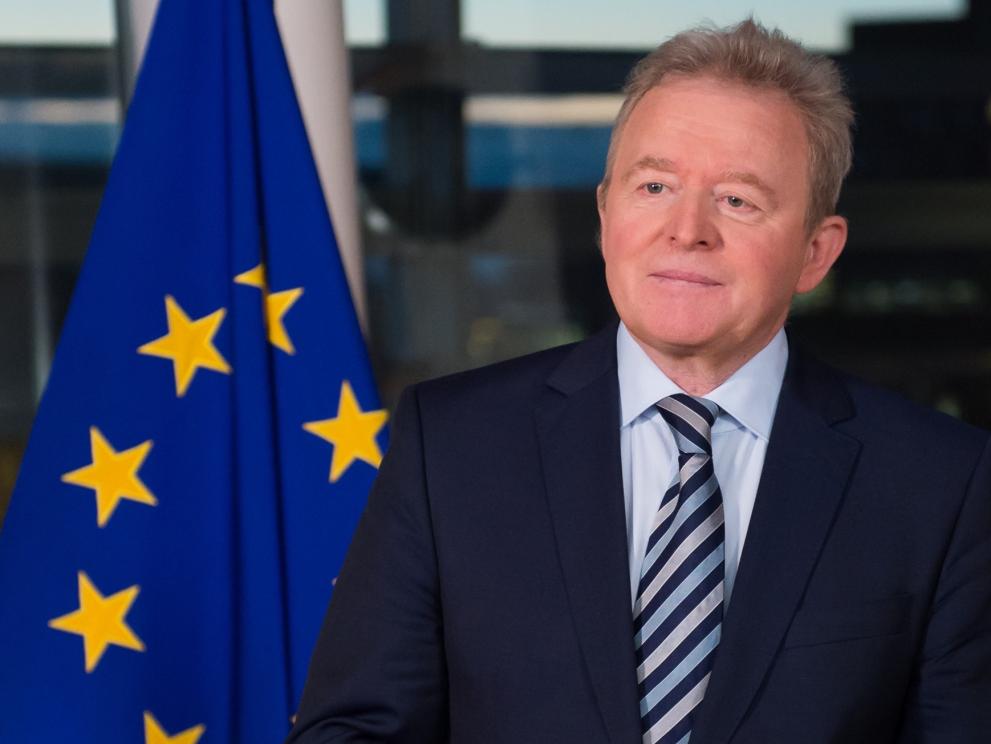
EU Agriculture Commissioner Janusz Wojciechowski was in India from 7-9 December on the sidelines of SIAL and Vinexpo with a delegation of over 50 European businesses.
To read about the visit
EU DAY AT MIRANDA HOUSE, DELHI UNIVERSITY
The seventh EU Day - organised in collaboration with Miranda House, University of Delhi - was a resounding success. The theme for the event was 'International Financial Institutions & the Climate Finance Gap,' and featured an insightful presentation by Dr. Nina Fenton from the European Investment Bank. The event witnessed enthusiastic participation from undergraduate students majoring in Economics, Statistics, Political Science, Sociology, and Geography. Dr. Fenton's presentation shed light on the crucial topic of climate finance, addressing the challenges and opportunities associated with International Financial Institutions. The EU team also presented information about the Erasmus+ Scholarship Program and highlighted the ongoing virtual fair, providing valuable insights to students eager to pursue educational opportunities in Europe.
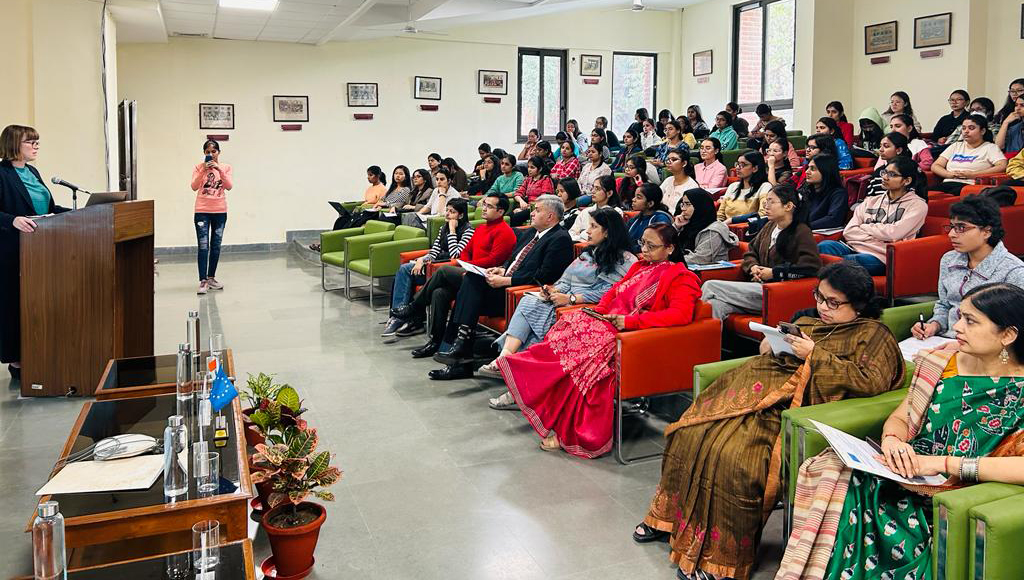
Post the event, the EU team held a meeting with the faculty members, including the Principal, for a discussion on potential partnerships. The focus was on exploring opportunities for collaboration and exchange programs involving both staff and students. This meeting underscored the commitment of both Miranda House and the European Union to fostering international cooperation in higher education.
CALL FOR INDIVIDUAL PAPERS
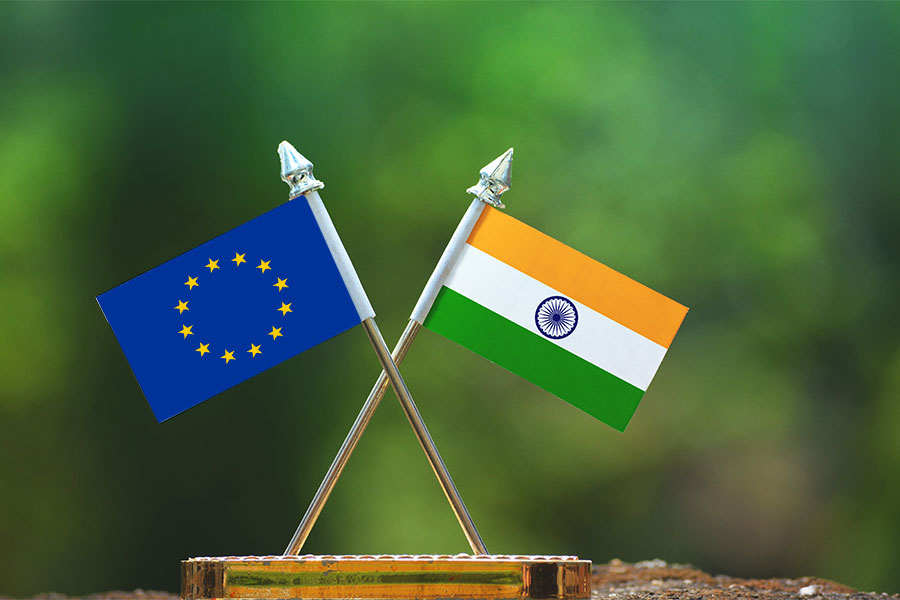
A Call for Individual Research Papers on EU-India Relations was launched in October 2023. This initiative seeks to invigorate research and raise awareness about the multifaceted partnership between the EU and India. Papers received were submitted by both Indian and European researchers. This call aimed to engage researchers at various stages of their academic or professional careers. Regarding thematic distribution, digital affairs emerged as a prominent topic, followed by various aspects of higher education and academia collaboration.
Geopolitical facets of EU-India relations, trade relations, development cooperation, migration, and climate affairs were also addressed. The research papers that emerge from this call encapsulate the expansive array of challenges and opportunities of the EU-India relationship. An award of up to 1.000€ will be awarded to selected research papers.
For details, please click here
UPCOMING EVENTS

EUFF Chennai: 19 - 28 January, 2024
For details: Home - EUFF India
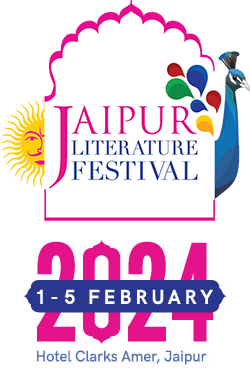
Jaipur Literature Festival: 1 - 5 February, 2024
For details: Home - Jaipur Literature Festival
ALUMNI CORNER
Our alumni Somya Jatwani reflects upon her life post ERASMUS Joint Masters Program, and her current role at the prestigious Institut Francais Inde, while Tejaswani Dhupad, a recent graduate pens down how the ERASMUS scholarship shaped the trajectory of her life both professionally and personally. Through this column we celebrate the lives and journeys of our alumni.
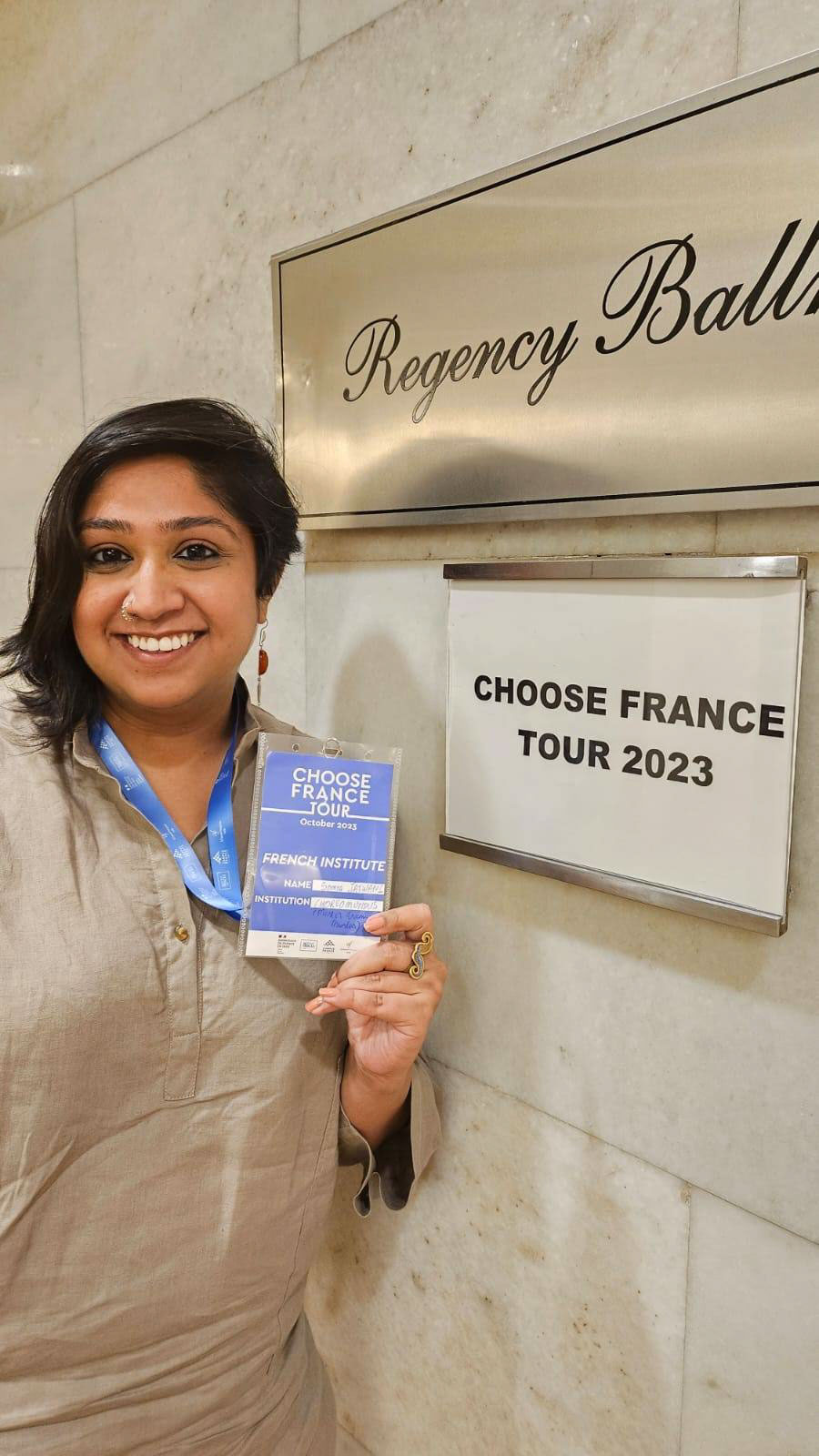
Somya Jatwani
Advancing Indo-French relations for the French Embassy in India’s cultural, academic and linguistic service - Institut Francais Inde since 2020, my life post Erasmus Mundus Masters has transformed completely.
Currently serving as National Coordinator on the CSR project “French for All, French for a Better Future” , I am ensuring introduction of French language and Francophone culture in 33 government schools of Delhi; while inspiring over 3400 students to grab opportunities in Europe like I did by sharing my Erasmus journey with them.
I, Somya Jatwani, am one of the few Indians who have been fortunate to be selected for the Erasmus Joint Masters Program - CHOREOMUNDUS (cohort 2017-2019). A professionally trained Belly Dancer who toured in India and abroad, I was limited to the bodily knowledge that a performer builds and imbibes. Creating and mastering choreographies while promoting cultural artefacts of India and Middle East was the edge of my exploration as a performing artist. And then, I was introduced to the fields of Dance and Intangible Cultural Heritage (ICH) through Erasmus pushing my boundaries above and beyond.
Based on the 2003 UNESCO Convention on Safeguarding of ICH, the program CHOREOMUNDUS is conceived by academic leaders of 4 universities in France, Norway, Hungary and UK. The purpose - bringing dancers and movement enthusiasts from far away corners of the world under one roof and debating what dance is and how it models societies we live in, and vice versa.
Can you count how many ethnicities, colours, countries people in the image below belong to? The answer is not in single digits, but the mission is - Researching Dance and (as) ICH.
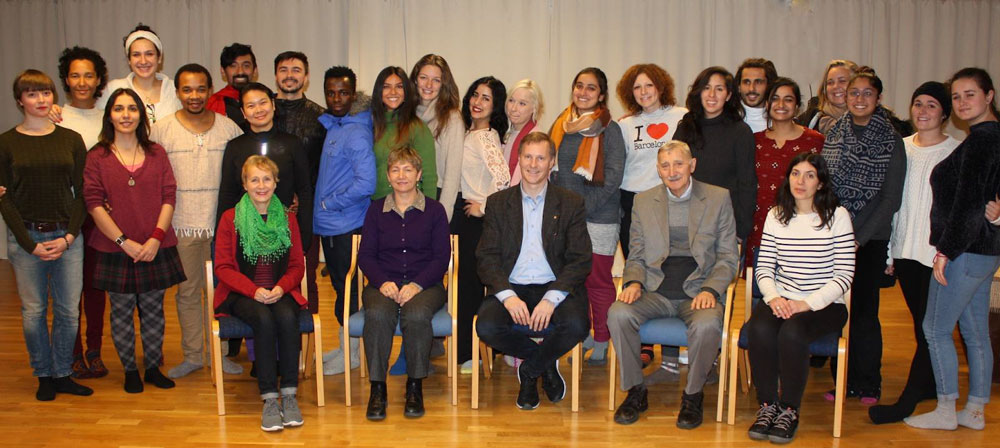
Being one of the 3 Indian students selected for this program, I got a chance to be a part of the 22 member strong group comprising 15+ nationalities. Journeying together through at least 4 countries and more, the learning does not stay limited to one’s coursework and classroom sessions. In meeting people who belong to cultures so diverse and different from yours, one is bound to dive deep into how one’s classmate/friend goes about their day-to-day life, culinary choices, traditions and festivals etc. While classroom sessions see intense debates on how movement and culture is perceived, evenings are filled with plans for the next local/cross-country visit and communal potlucks. One seems to forget the life and relations one had before onboarding the journey that is Erasmus.
In my 2 years of studying this Erasmus Mundus Joint Masters program, I have lived in 5 countries and 2 continents like a local resident. I have had the fortune of learning languages of the countries I stayed in and celebrated local festivals and traditions with others from the regional population, as well as my friends from the international cohort. This experience is truly one that no amount of money and travel planning can afford. I am better aware of how societies and administration function in these countries, in just a few months of living there. This is the added advantage, and in my humble opinion, the true essence of what Erasmus Mundus programs intend to impart.
Such insider knowledge, in my case, has been crucial in developing a sense of why movements systems and cultural structures are important; and why we must work on safeguarding them. Not only have I been exposed to the foundations of evolving pertinent domains like Intangible Cultural Heritage and Dance Anthropology-Ethnochoreology, the course has taught me how this knowledge plays out in the real world in Europe. It has opened up a portal of career possibilities to explore abroad, or build in India for the upcoming generations.
My professional and personal relations post the program have taken a 360 degree turn for good. On the professional front, I landed a job in the coveted French Embassy in India’s international mobility service- Campus France. Betwee 2020-21, I represented the Embassy and its intiatives for the state of Rajasthan to strengthen student mobility towards France and increase Indo-French academic ties on school and university level. Additionally, my research based on fieldwork in Los Angeles has now been published in an academic book “Dance in Popular Culture” by Florida State University, U.S.A
On the personal front, I have been able to form such long lasting relationships in the 5 countries of study that I have been part of important life events (marriage, child birth etc.). I plan to soon meet/visit friends from UK, Norway, Kenya and Brazil, while co-creating projects with them to spread the word about the life-changing opportunity Erasmus has been for us all.
A few glimpses of the incredible time spent and memories gained from 2017 to 2019
Semester 1 | Szeged, Hungary
Visits to national institutions like Móra Ferenc Museum in Szeged, Hungarian
Parliament and Institute of Musicology in Budapest housing the Budapest Bartók
Archives, the Central Archives for Hungarian Folk Music and Folk Dance
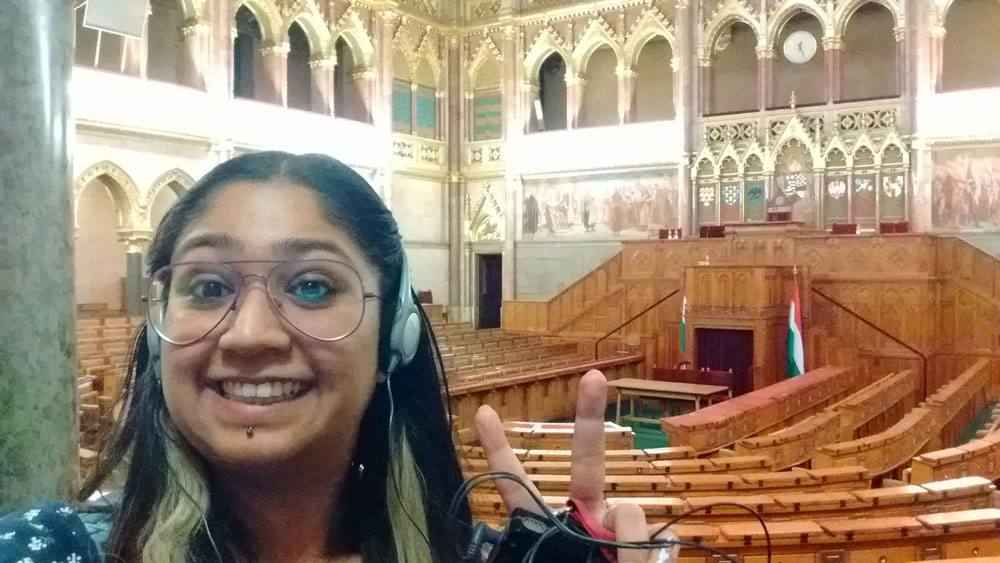
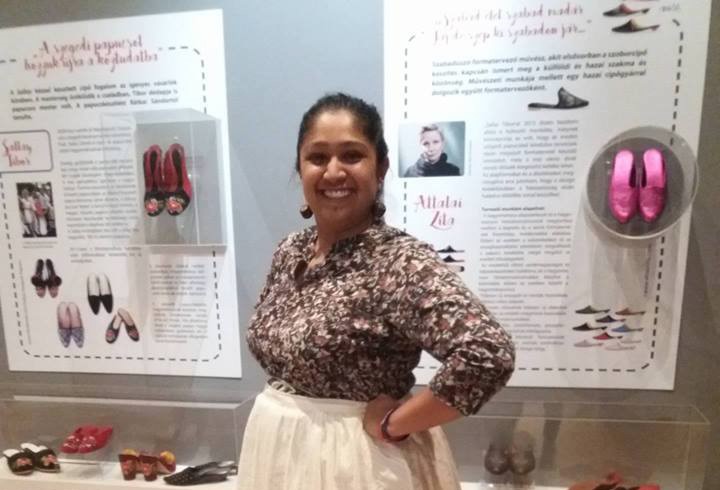
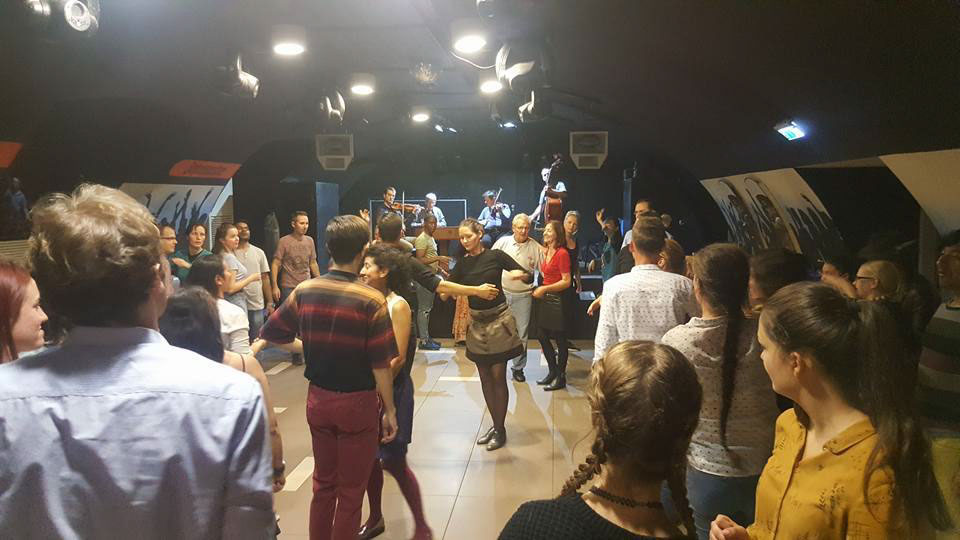
- Local Hungarian Folk Dance & Music Soirées
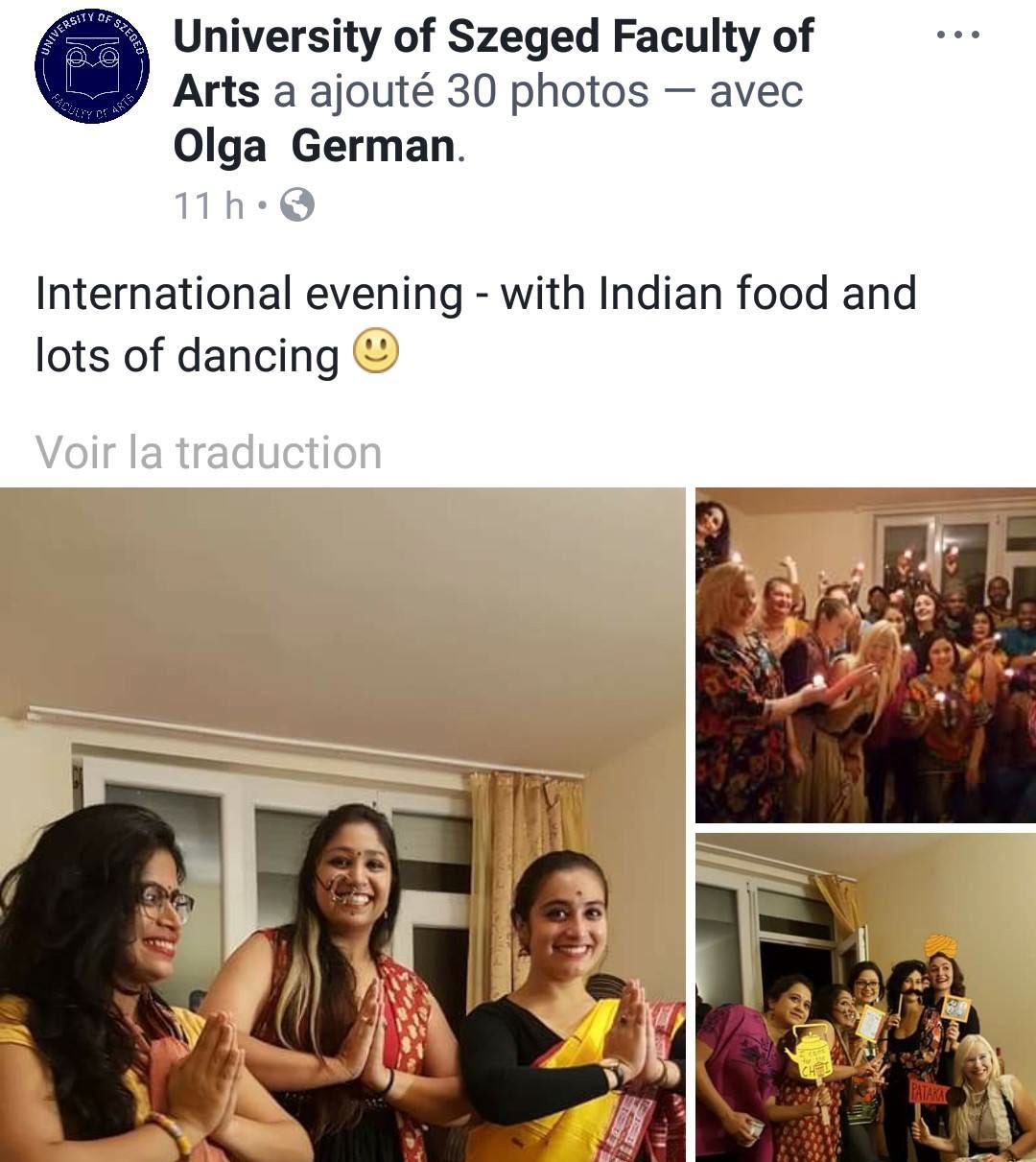
- Diwali celebrations hosted by 2 Indians (including me) for all international Choreomundus students
Semester 2 | Trondheim, Norway
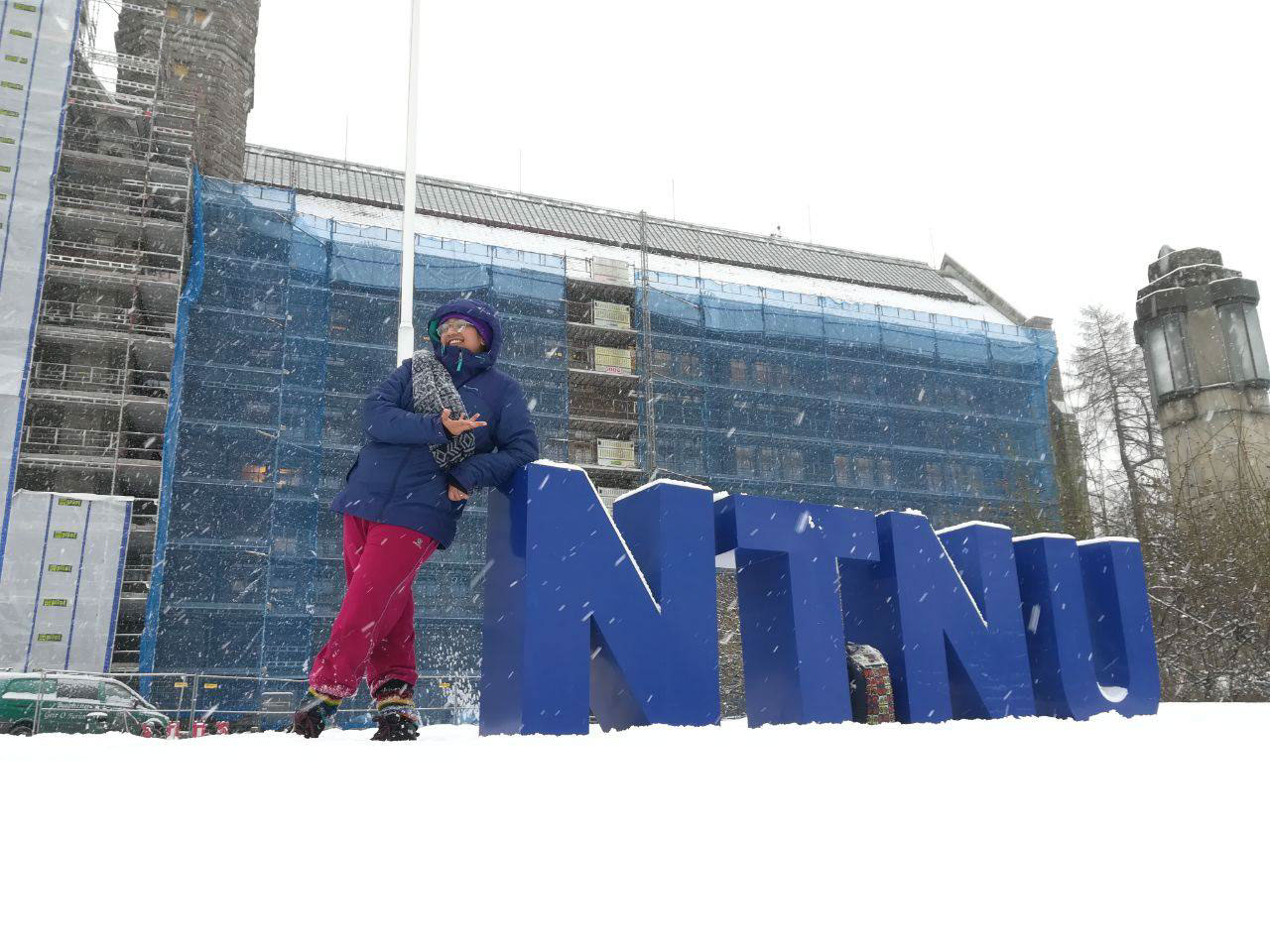
- First snow blizzard outside NTNU University campus
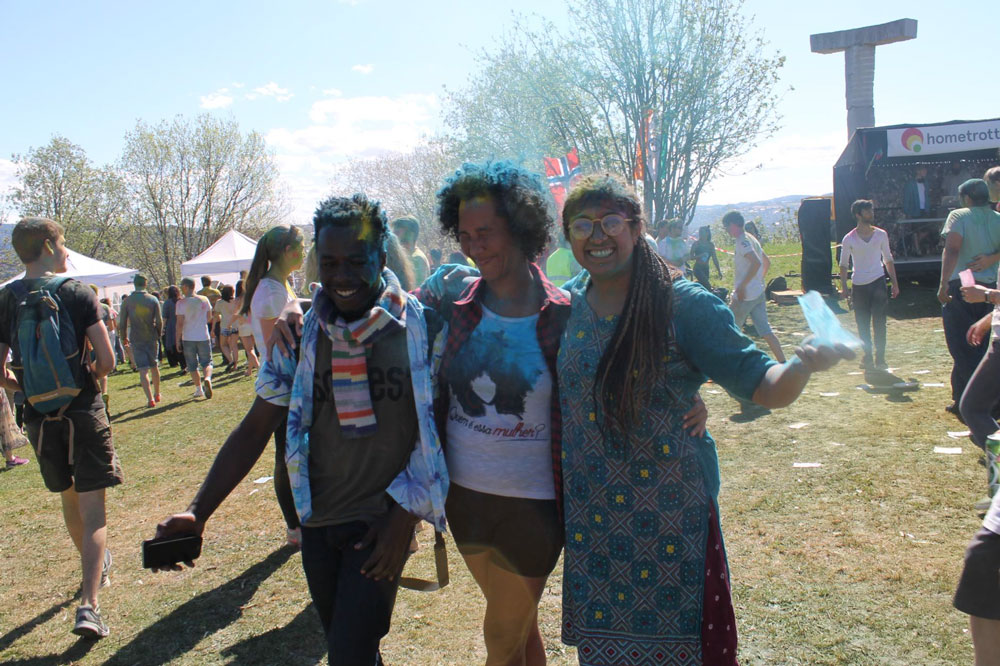
- Holi Celebrations atop a hill with huge international student crowd from University
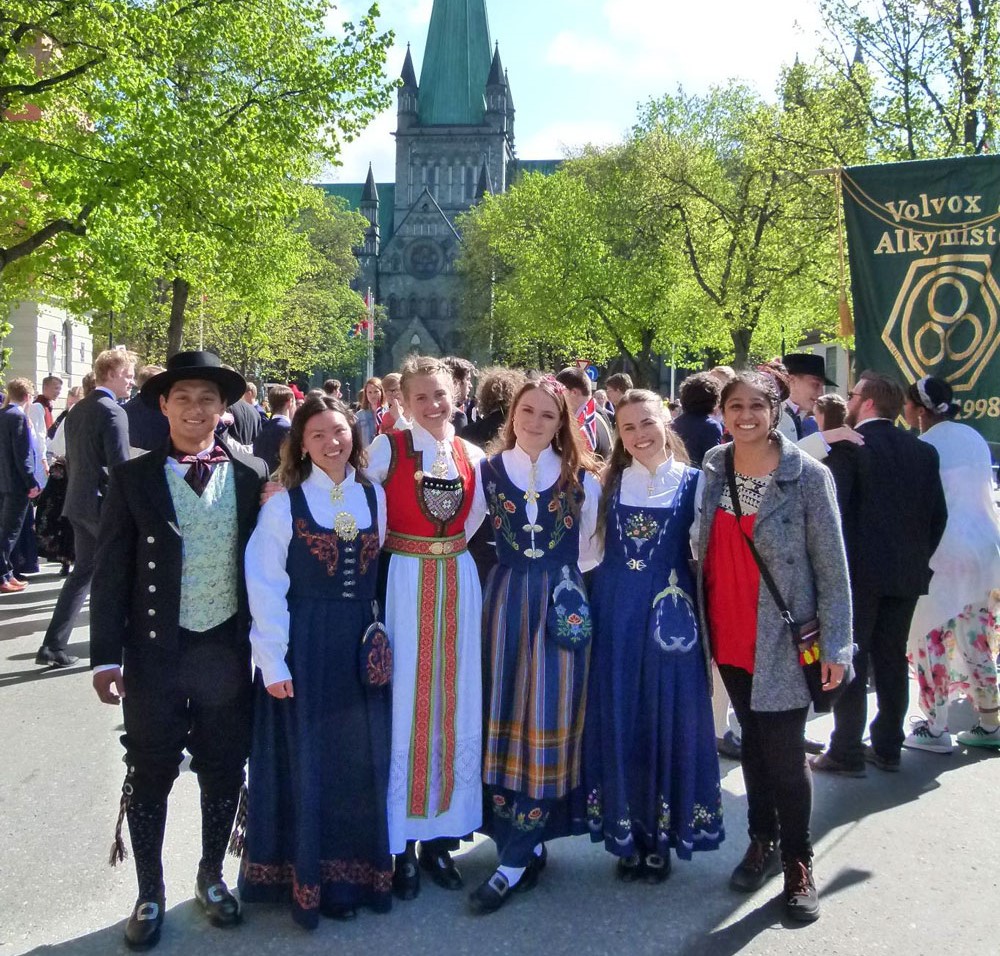
- Norwegian National Day Celebrations with locals dressed in National Folk costume
Semester 3 | Clermont Ferrand, France
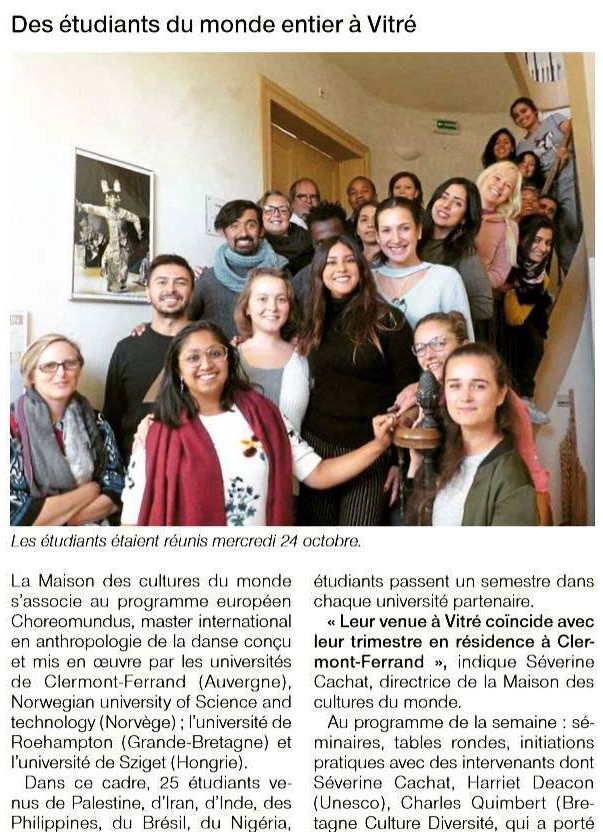
Featured in local French newspaper during intensive course in Vitre- UNESCO protected city
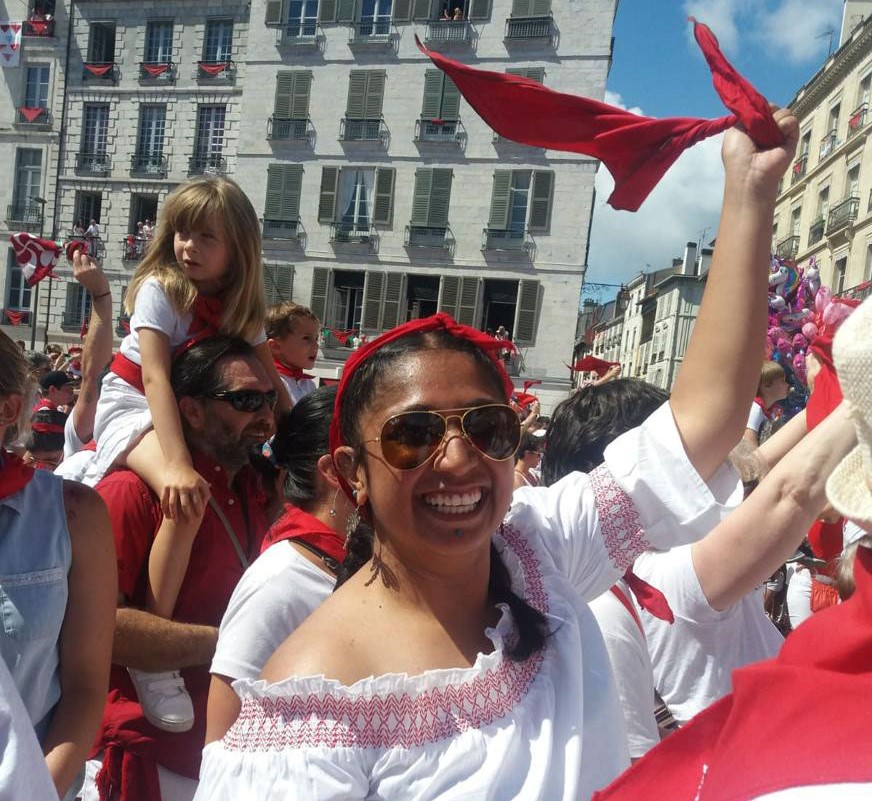
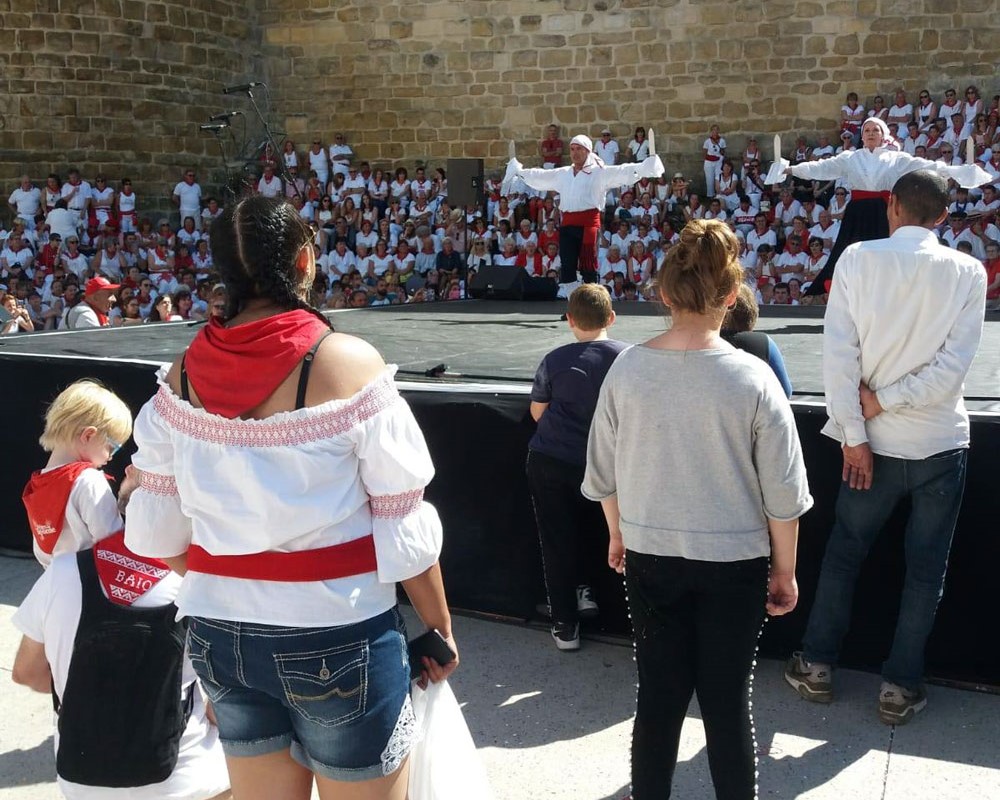
Semester 4 | London, United Kingdom
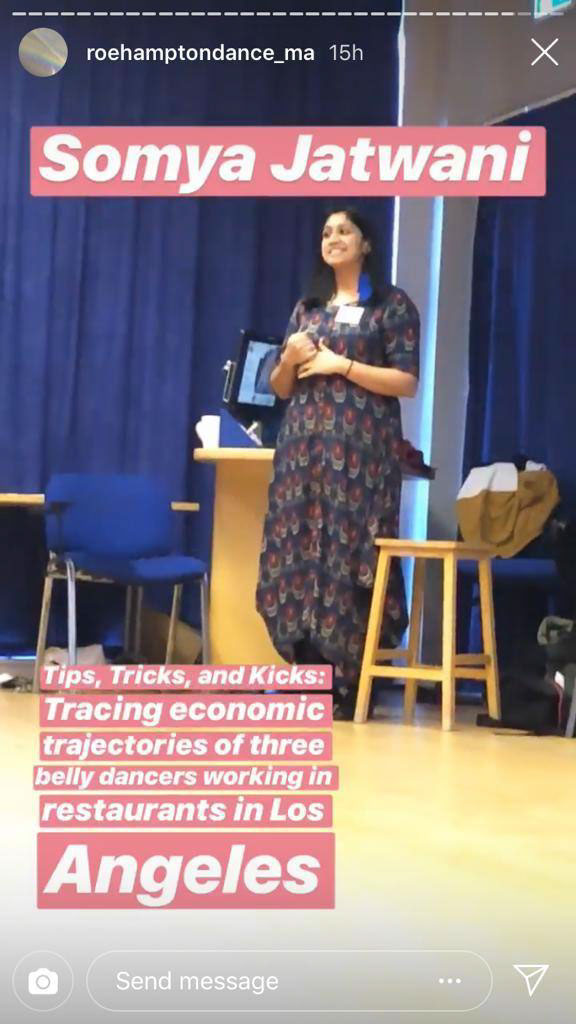 - Celebrating local festival of “Fetes de Bayonne” with French family and experiencing
their folk dance traditions
- Celebrating local festival of “Fetes de Bayonne” with French family and experiencing
their folk dance traditions
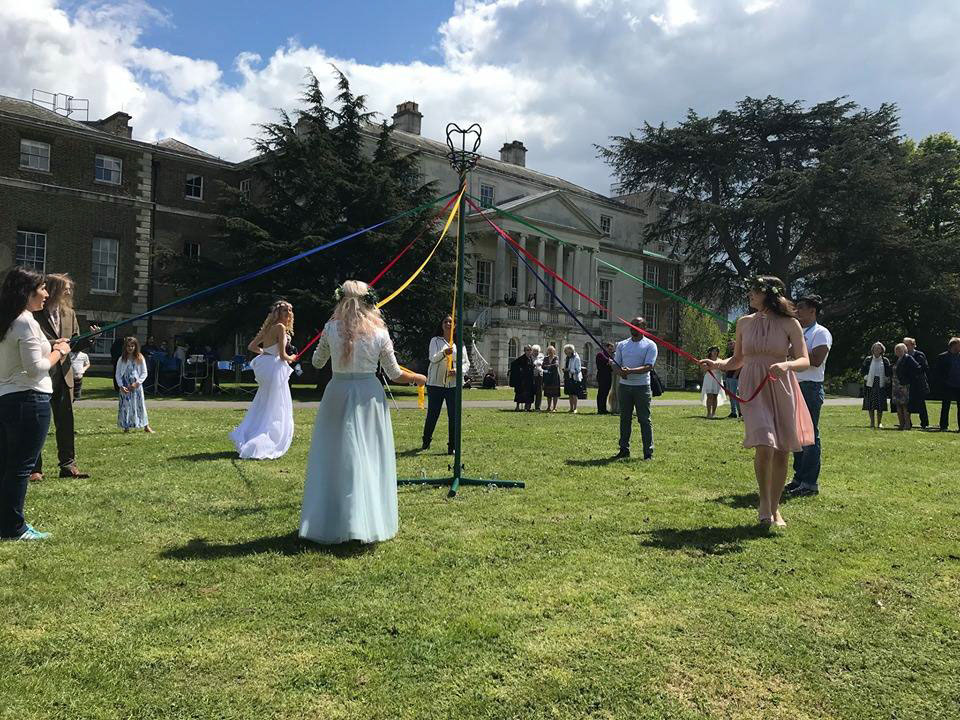 - Maypole (traditional English/European Folk Dance) performance for May Day
Celebrations
- Maypole (traditional English/European Folk Dance) performance for May Day
Celebrations
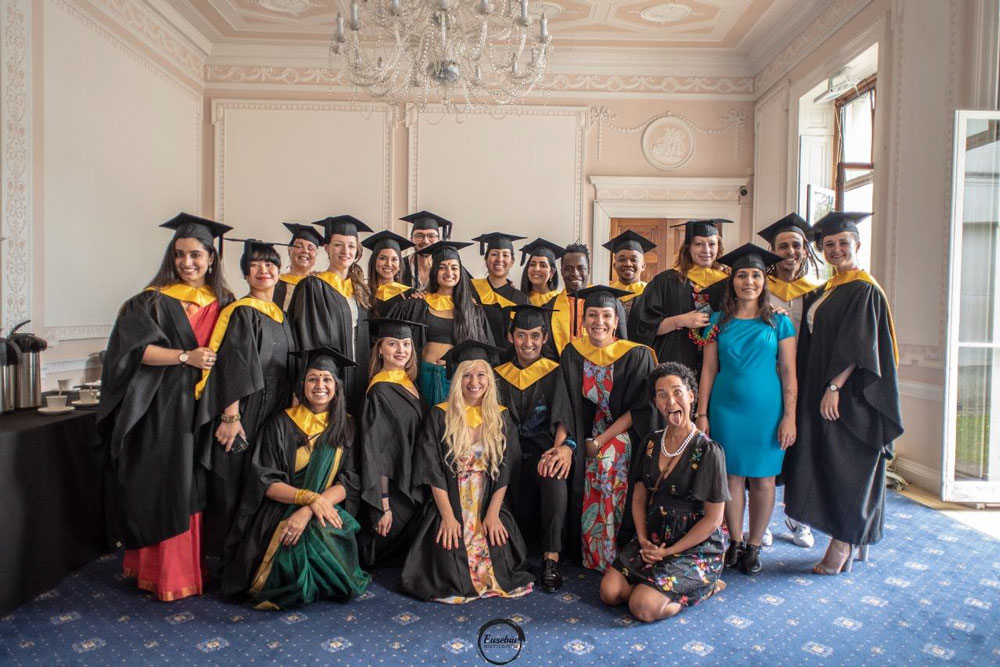 - Graduation Ceremony with Cohort 6 (year 2017-2019) of CHOREOMUNDUS
- Graduation Ceremony with Cohort 6 (year 2017-2019) of CHOREOMUNDUS
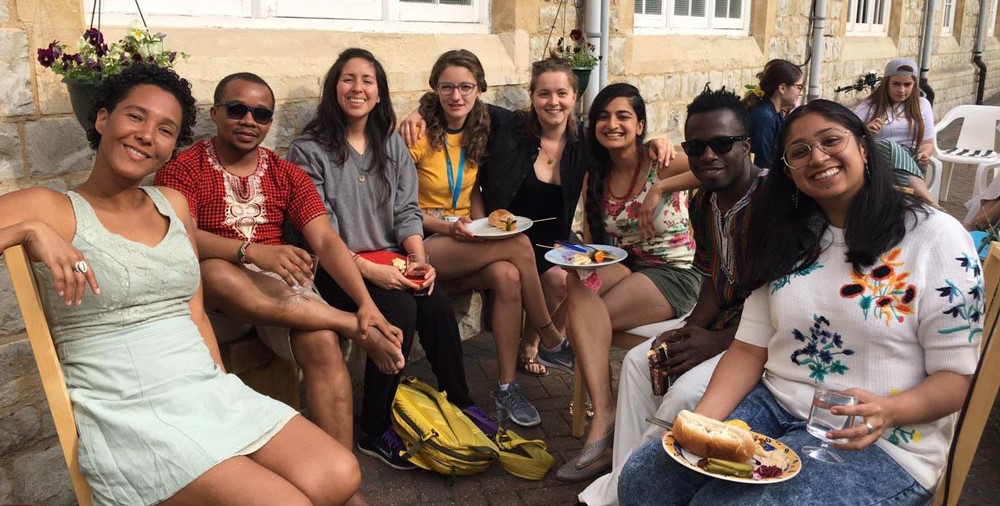
- Free Sunday lunches/potlucks on campus by Roehampton Chaplaincy
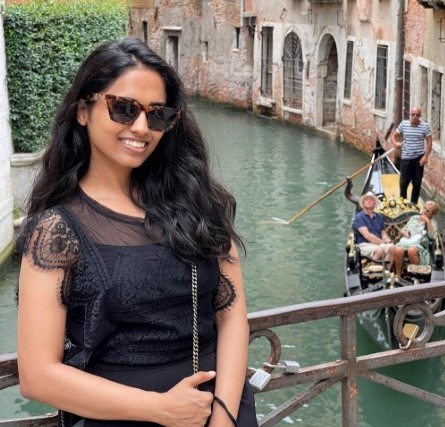
Tejaswani Dhupad
MY ERASMUS JOURNEY
Embarking on the Erasmus Mundus scholarship journey in pursuit of a Master's in Big Data Management and Analytics was a pivotal decision that not only enriched my academic knowledge but also sculpted the trajectory of my life and career. Stepping into the diverse and intellectually stimulating environment of the European Union, I found myself amidst a melting pot of cultures, ideas, and opportunities that profoundly shaped my educational and personal experiences.
The academic rigor and depth of the program were unparalleled. The curriculum seamlessly blended theoretical concepts with real-world applications, offering a comprehensive understanding of cutting-edge technologies and methodologies in handling vast volumes of data. Collaborating with esteemed professors and bright minds from around the globe not only broadened my perspectives but also fostered a culture of innovation and collaboration. Working on intricate projects and engaging in insightful discussions pushed the boundaries of my knowledge and honed my analytical skills.
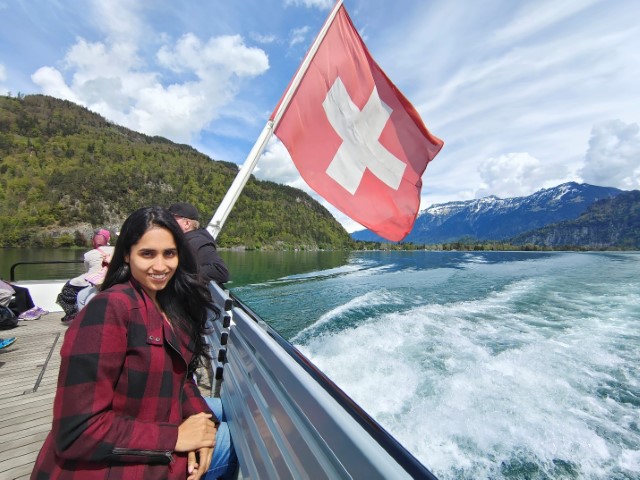
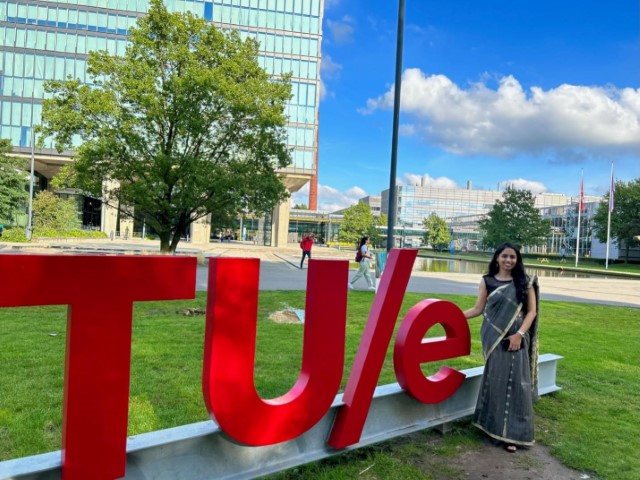
However, beyond the academic realm, it was the vibrant multicultural environment that left an indelible mark on my journey. Interacting with peers from diverse backgrounds fostered an enriching exchange of ideas, beliefs, and traditions. Engaging in conversations that transcended geographical boundaries challenged my perspectives and nurtured a global outlook, an invaluable asset in today's interconnected world.
Living in various cities across the EU during my studies offered a tapestry of experiences. Each city had its unique charm, history, and way of life. The bustling streets of Barcelona, the serene beauty of Brussels, the historic richness of Paris – each place imprinted memories that not only added colors to my life but also taught me adaptability and appreciation for diversity.
The Erasmus Mundus experience was not solely confined to academic pursuits; it was a holistic journey that catalyzed personal growth. Stepping out of my comfort zone, navigating through different languages, and embracing diverse cultures instilled resilience and a sense of openness. It transformed me into a more adaptable and empathetic individual, qualities that are invaluable in today's dynamic work environments.
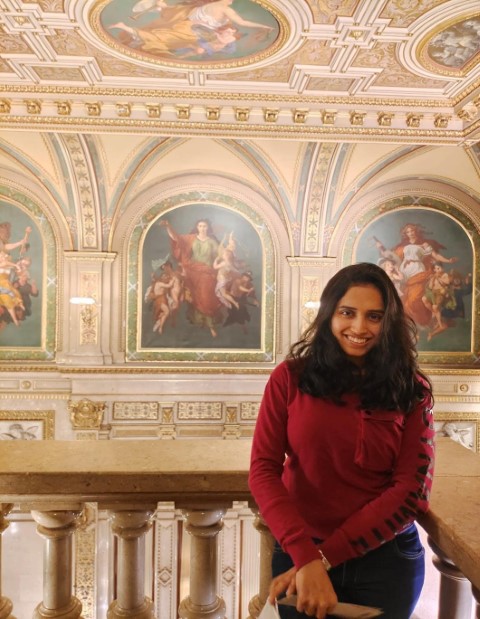
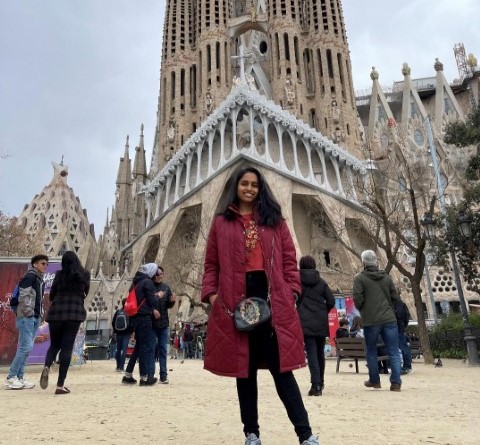
Professionally, the Erasmus Mundus scholarship was a springboard for my career. The knowledge and skills acquired during the program laid a robust foundation, empowering me to navigate the intricate landscape of Big Data effortlessly. The international exposure and network garnered through interactions with industry experts and fellow scholars opened doors to diverse opportunities. It provided me with a competitive edge in the job market and equipped me to tackle complex challenges in the field of data management and analytics.
Moreover, the connections forged during my time in the EU continue to be a source of inspiration and collaboration. The alumni network serves as a reservoir of shared experiences, professional guidance, and enduring friendships, fostering a sense of belonging and community even after the completion of the program.
In retrospect, the Erasmus Mundus scholarship was not just an academic pursuit; it was a transformative odyssey that sculpted my intellect, broadened my horizons, and enriched my soul. It empowered me with a multidimensional perspective, a plethora of skills, and a global network, laying the cornerstone for a fulfilling and impactful career in the ever-evolving landscape of Big Data Management and Analytics.
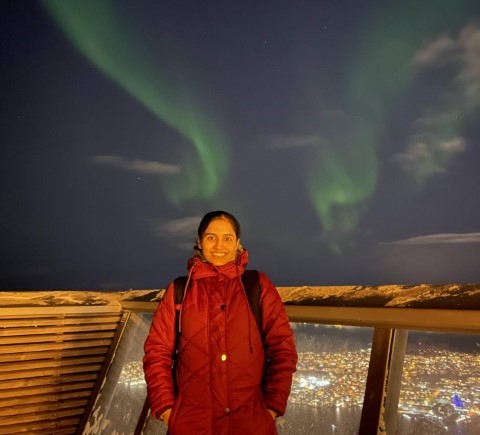
Winners of the Quiz Series
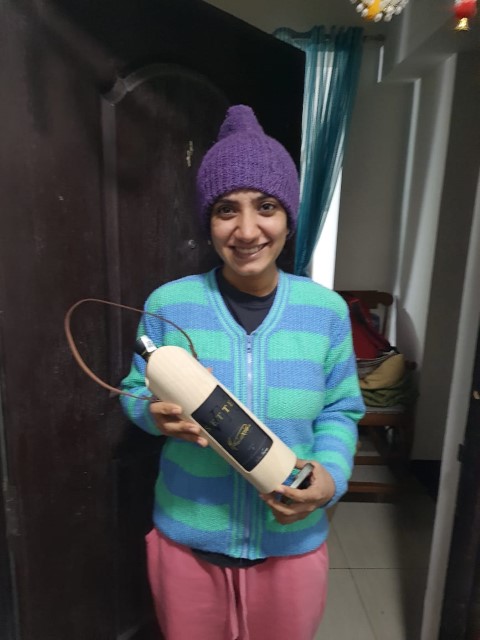
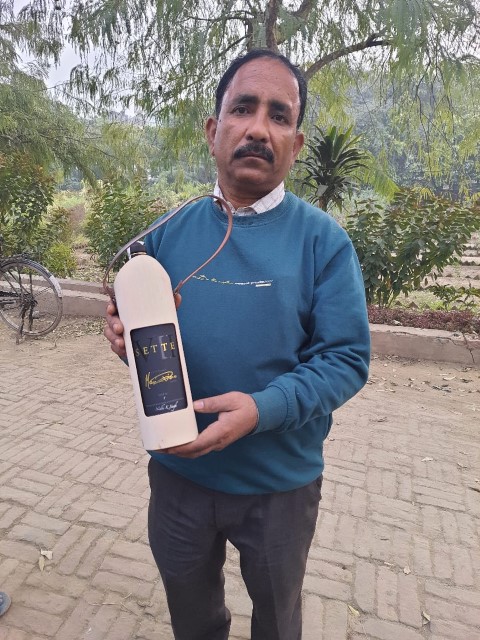
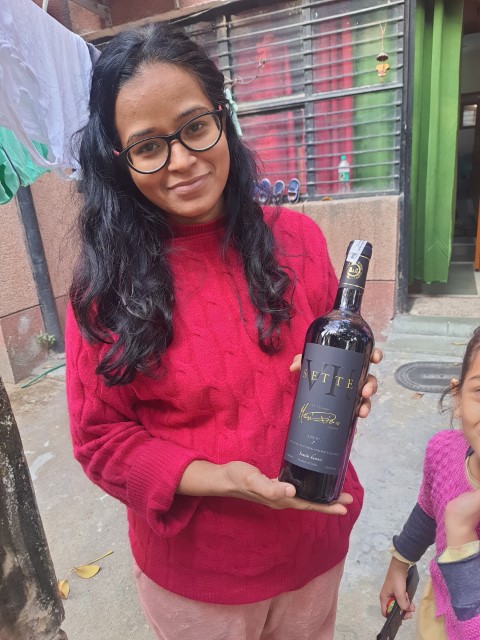
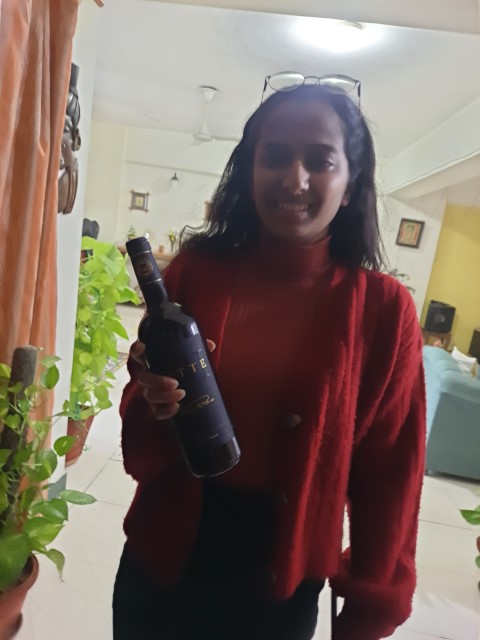
MEDIA CORNER
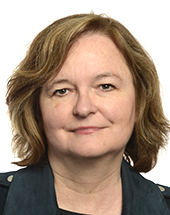
Morten Lokkegaard headed Delegation for Relations with India (D – IN) was in India comprising of 11 MEPs. Here’s what he spoke in a media interview (for WION interview).

